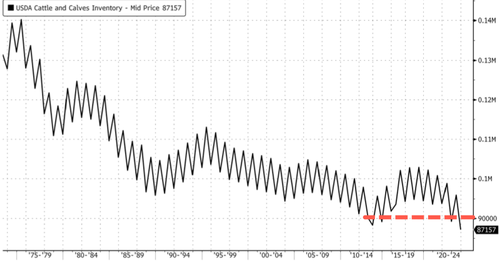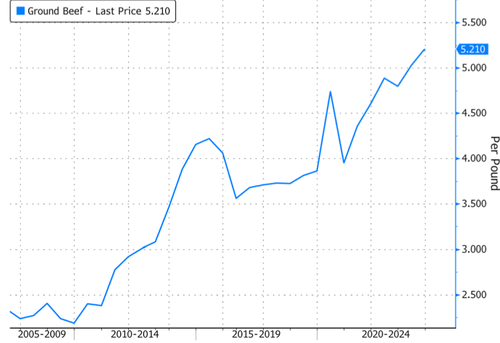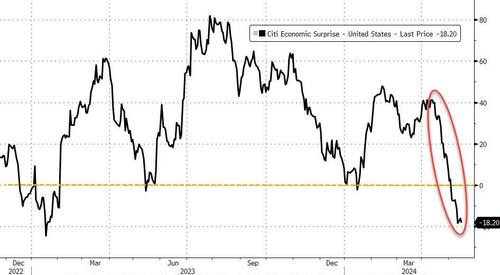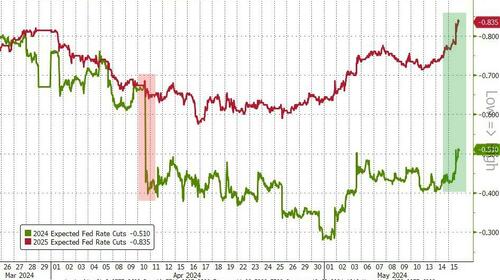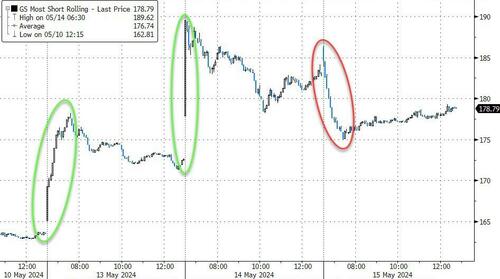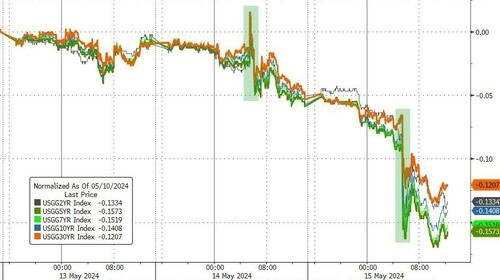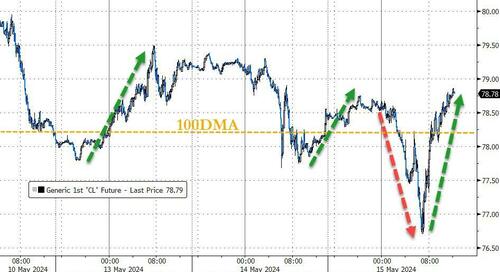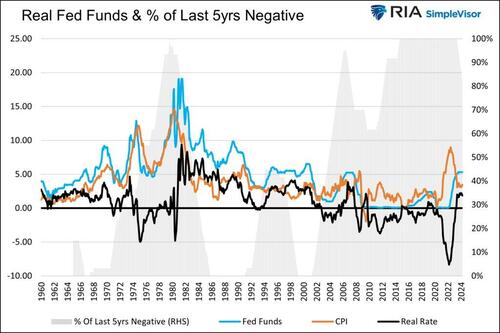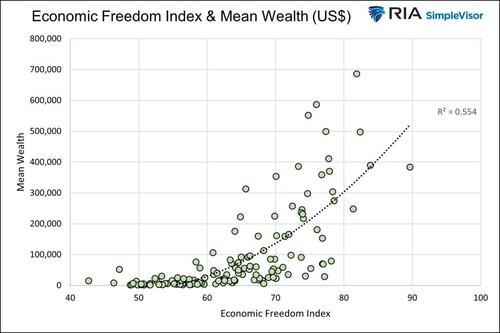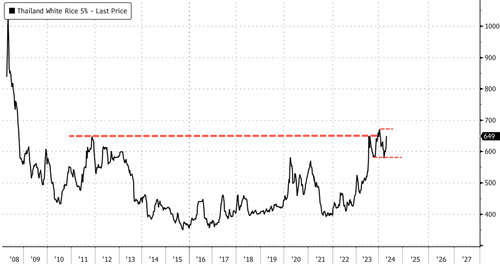It is sad that there are what you might call professional Catholics who make a living on their Catholicism, but in whom the spring of faith flows only faintly, in a few scattered drops. We must really make an effort to change this.
Distinction Matter - Subscribed Feeds
-
Site: Zero HedgeEnvironmental Protection Not A Major Issue For MajorityTyler Durden Wed, 05/15/2024 - 23:20
In a survey of 38 countries carried out by Statista Consumer Insights, only between 21 and 44 percent of respondents said that they considered environmental protection a major issue for their country.
As Statista's Katharina Buchholz reports, respondents in Brazil were the most concerned about the environment, with those in Mexico and Colombia also rating environmental protection as more important than most countries in the survey.
You will find more infographics at Statista
The picture was more mixed in Asia, with Indonesians seeing the issue as highly important, while respondents in Indian and China hit around the survey average and Pakistan ranked lower in the international comparison. However, the countries rating the environment as a major issue typically also rated many other issues as highly problematic. Despite fewer people seeing the problem in China and India, environmental protection was still rated as the second and fourth most important issue, respectively, by respondents in these countries behind the likes of health/social security or unemployment, education and poverty.
In developed countries, climate change was typically rated more important than environmental protection, while it was the other way round in developing countries. European ratings ranked from 40 percent in Italy deeming environmental protection a major issue to just 19 percent saying the same in Ireland. Among U.S. respondents, 27 percent thought the issue was major - rank 13 among 20 issues.
-
Site: Zero HedgeA Nanny State Idiocracy: A Tale Of Too Many Laws And Too Little FreedomTyler Durden Wed, 05/15/2024 - 23:00
Authored by John & Nisha Whitehead via The Rutherford Institute,
“Whether the mask is labeled fascism, democracy, or dictatorship of the proletariat, our great adversary remains the apparatus—the bureaucracy, the police, the military.”
- Simone Weil, French philosopher
We are caught in a vicious cycle of too many laws, too many cops, and too little freedom.
It’s hard to say whether we’re dealing with a kleptocracy (a government ruled by thieves), a kakistocracy (a government run by unprincipled career politicians, corporations and thieves that panders to the worst vices in our nature and has little regard for the rights of American citizens), or a Nanny State Idiocracy.
Whatever the label, this overbearing despotism is what happens when government representatives (those elected and appointed to work for us) adopt the authoritarian notion that the government knows best and therefore must control, regulate and dictate almost everything about the citizenry’s public, private and professional lives.
The government’s bureaucratic attempts at muscle-flexing by way of overregulation and overcriminalization have reached such outrageous limits that federal and state governments now require on penalty of a fine that individuals apply for permission before they can grow exotic orchids, host elaborate dinner parties, gather friends in one’s home for Bible studies, give coffee to the homeless, let their kids manage a lemonade stand, keep chickens as pets, or braid someone’s hair, as ludicrous as that may seem.
As the Regulatory Transparency Project explains, “There are over 70 federal regulatory agencies, employing hundreds of thousands of people to write and implement regulations. Every year, they issue about 3,500 new rules, and the regulatory code now is over 168,000 pages long.”
In his CrimeADay Twitter feed, Mike Chase highlights some of the more arcane and inane laws that render us all guilty of violating some law or other.
As Chase notes, it’s against the law to try to make an unreasonable noise while a horse is passing by in a national park; to leave Michigan with a turkey that was hunted with a drone; to refill a liquor bottle with different liquor than it had in it when it was originally filled; to offer to buy swan feathers so you can make a woman's hat with them; to enter a design in the Federal Duck Stamp contest if waterfowl are not the dominant feature of the design; to transport a cougar without a cougar license; to sell spray deodorant without telling people to avoid spraying it in their eyes; and to transport “meat loaf” unless it’s in loaf form.
In such a society, we are all petty criminals.
In fact, Boston lawyer Harvey Silvergate estimates that the average American now unknowingly commits three felonies a day, thanks to an overabundance of vague laws that render otherwise innocent activity illegal and an inclination on the part of prosecutors to reject the idea that there can’t be a crime without criminal intent.
The bigger the government grows, the worse the red tape becomes.
Almost every aspect of American life today, including the job sector, is now subject to this kind of heightened scrutiny and ham-fisted control.
Whereas 70 years ago, one out of every 20 U.S. jobs required a state license, today, almost 1 in 4 American occupations requires a license.
According to business analyst Kaylyn McKenna, more than 41 states require that makeup artists be licensed. Twenty-eight states require a license before you can work as a residential painter. Funeral attendants, whose duties include placing caskets in visitation rooms, arranging flowers and directing mourners, have to be licensed to do so in Kansas, Maine and Massachusetts.
The problem of overregulation has become so bad that, as one analyst notes, “getting a license to style hair in Washington takes more instructional time than becoming an emergency medical technician or a firefighter.”
This is what happens when bureaucrats run the show, and the rule of law becomes little more than a cattle prod for forcing the citizenry to march in lockstep with the government.
Overregulation is just the other side of the coin to overcriminalization, that phenomenon in which everything is rendered illegal, and everyone becomes a lawbreaker.
As policy analyst Michael Van Beek warns, the problem with overcriminalization is that there are so many laws at the federal, state and local levels—that we can’t possibly know them all.
“It’s also impossible to enforce all these laws. Instead, law enforcement officials must choose which ones are important and which are not. The result is that they pick the laws Americans really must follow, because they’re the ones deciding which laws really matter,” concludes Van Beek. “Federal, state and local regulations — rules created by unelected government bureaucrats — carry the same force of law and can turn you into a criminal if you violate any one of them… if we violate these rules, we could be prosecuted as criminals. No matter how antiquated or ridiculous, they still carry the full force of the law. By letting so many of these sit around, just waiting to be used against us, we increase the power of law enforcement, which has lots of options to charge people with legal and regulatory violations.”
Case in point: in New Jersey, in what journalist Billy Binion describes as “yet another example of the effects of overcriminalization, which increases interactions between civilians and police with little benefit to actual public safety,” police went so far as to arrest a teenager and seize other teen’s bicycles for so-called traffic violations and a failure to register their bikes with the state.
This is the police state’s superpower: it has been vested with the authority to make our lives a bureaucratic hell.
That explains how a fisherman can be saddled with 20 years’ jail time for throwing fish that were too small back into the water. Or why police arrested a 90-year-old man for violating an ordinance that prohibits feeding the homeless in public unless portable toilets are also made available. Or how states across the country, in a misguided attempt to disperse homeless populations, have criminalized sitting, sleeping, or resting in public spaces; sharing food with people; and camping in public.
The laws can get downright silly.
For instance, in Florida, it’s against the law to eat a frog that was used in a frog-jumping contest. You could also find yourself passing time in a Florida slammer for such inane activities as singing in a public place while wearing a swimsuit, breaking more than three dishes per day, farting in a public place after 6 pm on a Thursday, and skateboarding without a license.
“Such laws,” notes journalist George Will, “which enable government zealots to accuse almost anyone of committing three felonies in a day, do not just enable government misconduct, they incite prosecutors to intimidate decent people who never had culpable intentions. And to inflict punishments without crimes.”
Unfortunately, the consequences are all too serious for those whose lives become grist for the police state’s mill.
In this way, America has gone from being a beacon of freedom to a locked down nation.
We labor today under the weight of countless tyrannies, large and small, carried out in the so-called name of the national good by an elite class of governmental and corporate officials who are largely insulated from the ill effects of their actions.
We increasingly find ourselves badgered, bullied and browbeaten into bearing the brunt of their arrogance, paying the price for their greed, suffering the backlash for their militarism, agonizing as a result of their inaction, feigning ignorance about their backroom dealings, overlooking their incompetence, turning a blind eye to their misdeeds, cowering from their heavy-handed tactics, and blindly hoping for change that never comes.
The overt signs of the despotism exercised by the increasingly authoritarian regime that passes itself off as the United States government (and its corporate partners in crime) are all around us: censorship, criminalizing, shadow banning and de-platforming of individuals who express ideas that are politically incorrect or unpopular; warrantless surveillance of Americans’ movements and communications; SWAT team raids of Americans’ homes; shootings of unarmed citizens by police; harsh punishments meted out to schoolchildren in the name of zero tolerance; community-wide lockdowns and health mandates that strip Americans of their freedom of movement and bodily integrity; armed drones taking to the skies domestically; endless wars; out-of-control spending; militarized police; roadside strip searches; privatized prisons with a profit incentive for jailing Americans; fusion centers that spy on, collect and disseminate data on Americans’ private transactions; and militarized agencies with stockpiles of ammunition, to name some of the most appalling.
Yet as egregious as these incursions on our rights may be, it’s the endless, petty tyrannies—the heavy-handed, punitive-laden dictates inflicted by a self-righteous, Big-Brother-Knows-Best bureaucracy on an overtaxed, overregulated, and underrepresented populace—that illustrate so clearly the degree to which “we the people” are viewed as incapable of common sense, moral judgment, fairness, and intelligence, not to mention lacking a basic understanding of how to stay alive, raise a family, or be part of a functioning community.
In exchange for the promise of an end to global pandemics, lower taxes, lower crime rates, safe streets, safe schools, blight-free neighborhoods, and readily accessible technology, health care, water, food and power, we’ve opened the door to lockdowns, militarized police, government surveillance, asset forfeiture, school zero tolerance policies, license plate readers, red light cameras, SWAT team raids, health care mandates, overcriminalization, overregulation and government corruption.
We relied on the government to help us safely navigate national emergencies (terrorism, natural disasters, global pandemics, etc.) only to find ourselves forced to relinquish our freedoms on the altar of national security, yet we’re no safer (or healthier) than before.
We asked our lawmakers to be tough on crime, and we’ve been saddled with an abundance of laws that criminalize almost every aspect of our lives.
We wanted criminals taken off the streets, and we didn’t want to have to pay for their incarceration. What we’ve gotten is a nation that boasts the highest incarceration rate in the world, with many doing time for relatively minor, nonviolent crimes, and a private prison industry fueling the drive for more inmates.
We wanted law enforcement agencies to have the necessary resources to fight the nation’s wars on terror, crime and drugs. What we got instead were militarized police decked out with M-16 rifles, grenade launchers, silencers, battle tanks and hollow point bullets—gear designed for the battlefield, more than 80,000 SWAT team raids carried out every year (many for routine police tasks, resulting in losses of life and property), and profit-driven schemes that add to the government’s largesse such as asset forfeiture, where police seize property from “suspected criminals.”
We fell for the government’s promise of safer roads, only to find ourselves caught in a tangle of profit-driven red light cameras, which ticket unsuspecting drivers in the so-called name of road safety while ostensibly fattening the coffers of local and state governments.
This is what happens when the American people get duped, deceived, double-crossed, cheated, lied to, swindled and conned into believing that the government and its army of bureaucrats—the people we appointed to safeguard our freedoms—actually have our best interests at heart.
As I make clear in my book Battlefield America: The War on the American People and in its fictional counterpart The Erik Blair Diaries, the problem with these devil’s bargains is that there is always a catch, always a price to pay for whatever it is we valued so highly as to barter away our most precious possessions.
In the end, such bargains always turn sour.
-
Site: Zero HedgeConvicted Non-Violent Felons Can Own Guns, Ninth Circuit RulesTyler Durden Wed, 05/15/2024 - 22:40
In what must be the first time California's 9th circuit has ruled in favor of the 2nd Amendment, non-violent convicted felons can now own guns.
The decision stems from a 2020 case, in which California resident Steven Duarte was arrested after tossing a handgun out of a moving car during a traffic stop. He was indicted by a federal grand jury for possessing said firearm while being previously convicted of "a crime punishable by imprisonment for a term exceeding one year" in violation of the federal “felon-in-possession” law.
 A customer shops for a pistol in Tinley Park, Ill., on Dec. 17, 2012. (Scott Olson/Getty Images)
A customer shops for a pistol in Tinley Park, Ill., on Dec. 17, 2012. (Scott Olson/Getty Images)
Duarte had five prior non-violent criminal convictions in California; vandalism, felon in possession of a firearm, drug possession, and two convictions for fleeing a police officer - each of which is punishable by one year or more in prison. After pleading not guilty, Duarte's case proceeded to trial, where he was found guilty and sentenced to 51 months in prison.
Not so fast!
As the Epoch Times notes further, in a 2-1 decision handed down on May 9, the Ninth Circuit Court of Appeals ruled that Mr. Duarte’s conviction violated the Second Amendment as applied to him.
Specifically, the court’s majority found that the federal government failed to prove that its felon-in-possession law supports disarming convicted felons for life under a two-step framework established by the U.S. Supreme Court in the 2022 “New York State Rifle & Pistol Association Inc. v. Bruen” case.
The two-step process, put forth by U.S. Supreme Court Justice Clarence Thomas, first requires the court to determine whether the Second Amendment’s “plain text” covers an individual’s conduct. If so, then that conduct is presumptively protected, and the government must prove that its law is “consistent with this Nation’s historical tradition of firearm regulation.”
“Because Duarte is an American citizen, he is part of the people whom the Second Amendment protects,” Senior Circuit Judge Carlos Bea wrote for the majority.
“The Government argues only that ’the people‘ in the Second Amendment excludes felons like Duarte because they are not members of the ’virtuous’ citizenry,” he wrote. “We do not share that view.”
The burden then fell back to the federal government to show that its gun possession policy aligns with the “historical tradition” of the United States.
However, during the Early Republic era, Mr. Duarte’s past convictions either would have been considered misdemeanors, didn’t exist as a crime, or may have had predecessors for which the government failed to provide evidence of their existence, Judge Bea noted.
‘Historically Understood Meaning’
“Based on this record, we cannot say that Duarte’s predicate offenses were, by Founding-era standards, of a nature serious enough to justify permanently depriving him of his fundamental Second Amendment rights,” the majority opinion read.
“The Second Amendment’s plain text and historically understood meaning therefore presumptively graduate his individual right to possess a firearm for self-defense.”
Judge Bea, a George W. Bush appointee, was joined by Circuit Judge Lawrence VanDyke, a Donald Trump appointee. The majority opinion overturned a 2010 Ninth Circuit precedent, “U.S. v. Vongxay”, which upheld the federal prohibition on possession of firearms by felons.
Circuit Judge Milan Smith, a George W. Bush appointee who penned the Vongxay opinion, dissented and urged the appeals court to order a new hearing of Mr. Duarte’s case before a full, 11-judge panel.
He argued that Buren does not override Vongxay, at least not before the U.S. Supreme Court further clarifies the constitutionality of the federal felon-in-possession law.
“One day—likely sooner, rather than later—the Supreme Court will address the constitutionality of [the federal felon firearm ban] or otherwise provide clearer guidance on whether felons are protected by the Second Amendment,” Judge Smith wrote in his dissenting opinion.
“But it is not our role as circuit judges to anticipate how the Supreme Court will decide future cases.”
The Ninth Circuit’s vacation of Mr. Duarte’s conviction added to the post-Bruen “Circuit Split” over the scope of the Second Amendment.
The Ninth Circuit joins, at least for now, the Third Circuit to rule in favor of Americans permanently stripped of Second Amendment rights because of past non-violent offenses, while the Tenth Circuit has reaffirmed its precedent upholding the restriction on those individuals.
In a 2-1 ruling last October, the Tenth Circuit observed that the Bruen Court “didn’t appear to question the constitutionality of longstanding prohibitions on possession of firearms by convicted felons.”
Instead, it argued, “Bruen apparently approved the constitutionality of regulations requiring criminal background checks ... to ensure that the applicant is a ‘law-abiding, responsible citizen.’”
-
Site: Novus Ordo Watch
Bad theology against a false pope – not going to work!
Over a Dozen ‘Prominent Catholics’ Warn Francis:
Resign or Be Deposed!
On May 2, 2024, the feast of Saint Athanasius, the semi-traditionalist blog Rorate Caeli published a ‘major statement’ against Jorge Bergoglio (aka ‘Pope Francis’). It is entitled “Call for the Resignation of Pope Francis” and bears the signatures of 16 people Life Site describes as “prominent Catholics”.
Just how prominent the signatories are, is another question, but it doesn’t really matter. Their names, along with their respective credentials, are listed by Rorate Caeli as follows:
… READ MORERev. Linus F.
-
Site: Novus Ordo Wire – Novus Ordo Watch
Bad theology against a false pope – not going to work!
Over a Dozen ‘Prominent Catholics’ Warn Francis:
Resign or Be Deposed!
On May 2, 2024, the feast of Saint Athanasius, the semi-traditionalist blog Rorate Caeli published a ‘major statement’ against Jorge Bergoglio (aka ‘Pope Francis’). It is entitled “Call for the Resignation of Pope Francis” and bears the signatures of 16 people Life Site describes as “prominent Catholics”.
Just how prominent the signatories are, is another question, but it doesn’t really matter. Their names, along with their respective credentials, are listed by Rorate Caeli as follows:
… READ MORERev. Linus F.
-
Site: Zero HedgeToxic Atmosphere At FDIC Spurs Calls For Chair's ResignationTyler Durden Wed, 05/15/2024 - 22:20
Authored by Philip Wegmann via RealClearPolitics,
The White House did not offer their full faith and credit to the FDIC chairman when asked by RealClearPolitics about a bombshell 234-page investigation that detailed a toxic environment within the agency.
Other than noting that Martin Gruenberg, the official in question, had already “apologized and spoke[n] to” allegations that he presided over a culture of bullying, harassment, and mismanagement, Karine Jean-Pierre, the president’s spokeswoman, mostly demurred.
Gruenberg will not skate by so easily when he testifies before Congress this week. Republicans in both the House and Senate are hell-bent for leather. And his scalp.
The report was published by law firm Cleary Gottlieb last week and followed a Wall Street Journal investigation last November that documented a federal agency akin to “a good ol’ boys club” where female employees were subjected to stalking, unwelcome illicit messages, and sexual harassment.
The episode is an embarrassment to President Biden, who promised on the first day of his administration to fire “on the spot” anyone who engaged in such behavior.
It is also a political liability. If Gruenberg, a Biden nominee who served in both the Obama and Trump administrations and the Senate confirmed by voice vote, exits under pressure, it would leave the FDIC board deadlocked during an election year. “A 2-2 vote would stall and probably doom politically sensitive banking policy,” observed Renaissance Macro Research. The regulatory policy of the administration would then hang in limbo.
These realities are not lost on many in the FDIC workforce who want reform. In a statement obtained by RCP, current employees expressed their concern that “the egregious issues documented in the Cleary report by over 500 employees have become partisan.”
Working at an agency now under scrutiny for a history of reprisals against whistleblowers, the statement was left unsigned, though the drafters noted that they “have a wide range of political views, ranging from far left to far right.”
“The FDIC employees behind this statement do not have confidence that the chairman and executive management have the willingness to truly make the cultural and structural changes necessary to fully address the [matters] identified in the report,” they write.
For his part, Gruenberg has already offered an apology.
“I want to also thank everyone who shared their experiences throughout this process. I know that doing so was difficult. To anyone who experienced sexual harassment or other misconduct at the FDIC, I again want to express how very sorry I am. I also want to apologize for any shortcomings on my part,” he said in a statement when the Cleary Gottlieb report was published.
“As chairman, I am ultimately responsible for everything that happens at our agency, including our workplace culture,” Gruenberg added.
The chairman, whom the report found has a history of anger and belittling staff, plans to announce a new, independent office devoted to professional conduct at the agency, according to prepared testimony before the House Financial Services Committee Wednesday. But the head of that committee, Republican Chairman Patrick McHenry, has already called for his resignation. And some FDIC employees are already registering their dissatisfaction.
“The Chairman has communicated the action plan that he oversaw the creation of as proof of his commitment to improving conditions at the FDIC. We, however, do not have confidence that this action plan is meaningful,” they wrote.
More than a dozen Republicans now oppose Gruenberg. South Carolina Sen. Tim Scott, the ranking member on the Senate Banking Committee, has called for his resignation. Iowa Sen. Joni Ernst has called on the Department of Justice to open an investigation. Only one Democrat, however, Illinois Rep. Bill Foster, has followed suit, calling for the FDIC chairman to step down.
Rep. Maxine Waters, the top Democrat on Financial Services, blasted the report, not the FDIC chairman, for focusing too much on current leadership. Democrats are expected to circle the wagons to protect Gruenberg during his testimony – an irony given the propensity of Democrats, not Republicans, to rail against toxic workplace environments.
Treasury Secretary Janet Yellen signaled her displeasure, telling reporters Tuesday that “the kind of abuses that were documented in the report are a totally unacceptable way to treat employees at the FDIC and not in line with the core values of the Biden administration.” She stopped short, however, of joining Republican calls for his resignation.
-
Site: Zero Hedge"Make Innocence Great Again": Mothers Gear Up To Decide The 2024 ElectionsTyler Durden Wed, 05/15/2024 - 22:00
Authored by Russ Jones via The Epoch Times (emphasis ours),
 A voter casts her ballot with her child during the midterm primary election at a polling station at Rose Hill Elementary School in Alexandria, Va., on June 21, 2022. (Alex Wong/Getty Images)
A voter casts her ballot with her child during the midterm primary election at a polling station at Rose Hill Elementary School in Alexandria, Va., on June 21, 2022. (Alex Wong/Getty Images)
“Make innocence great again.”
It’s a mantra that Juliana Ormond feels strongly about. The suburban mom of three children seeks to call attention to the importance of preserving the purity and innocence of childhood. She said she desires a return to a time when she contends innocence was valued and protected, which conflicts with the complexities and challenges of the current culture.
“The only way to bring back innocence is to keep our children away from those who want to make everything about sexual identity,” Ms. Ormond said. “I look for political candidates who support policies that align with the Bible.”
She said she has watched the culture become more progressive since she was young. From her home in suburban Orlando, Ms. Ormond told The Epoch Times that two of her children are 10 years apart. Her younger daughter had a radically different school experience from her older sister.
“One day, my younger daughter brought a girlfriend home after school,” she said. “The friend proudly proclaimed that she was nonbinary. I was shocked. That ideology wasn’t pushed when my older daughter went to school.”
Mothers such as Ms. Ormond represent a significant demographic segment of the population and make up a sizable portion of the electorate. Candidates recognize the importance of appealing to this demographic group to secure their votes. Their motivations are deeply personal, rooted in parenthood’s daily struggles and triumphs. From grassroots activism to high-profile political campaigns, mothers harness their perspectives and experiences to advocate for change on issues ranging from abortion, health care, and education to the environment and social justice.
“I believe both the Democrat and Republican parties have left the people,” Ms. Ormond said. “I am dissatisfied with our government and think they are all in cahoots with one another.”
Moms of various social and political stripes are welcomed in the corridors of strategic planning, and mothers are stepping out and striding onto the political stage with vigor and determination, reshaping the political landscape. These women assert their influence in the public arena, driven by a deep-seated desire to create a better world for their children.
Mama Bears Bite Back
With almost 89 million women eligible to vote, they represent the largest and possibly most persuasive voting bloc in the United States. Among this constituency are those who identify as “mama bears.”
The Mama Bear movement is growing and altering the nation’s political climate. These mothers represent a diverse group of everyday women who are driven to shield their children from the agendas of special interest groups who think they know what’s best for kids.
Moms for Liberty co-founder Tina Descovich talked with The Epoch Times about parents’ growing concern about public education and parental rights. In 2021, three mothers from Florida founded Moms for Liberty to combat COVID-19 restrictions.
“Moms are troubled about the country’s future and education crisis in America,” she said. “Schools have been infiltrated with woke ideologies, so moms are looking closely at private schools or homeschooling their children.”
Ms. Descovich, a former Brevard School Board member in Florida, said Moms for Liberty focuses on the 2024 state school board elections nationwide, where progressive agendas thrive.
In April, the Biden administration reversed changes made under President Donald Trump and Education Secretary Betsy DeVos that updated Title IX regulations governing schools’ responses to sexual misconduct. The revised rules, which go into effect in August, reinterpret what constitutes harassment and sex discrimination to prohibit actions driven by sexual orientation, gender identity, sex stereotypes, and pregnancy.
To date, 15 states have sued the administration over the new policy. Moms for Liberty has elevated its effort to inform moms about the changes.
“Many moms are deeply troubled with the rewriting of Title IX,” Ms. Descovich said. “We must stand up for the parental right to raise our children and support them as they navigate significant life lessons.”
For these reasons, she said, many parents seek alternative education options such as homeschooling or private schools.
Moms for Liberty is represented in 48 states, with 300 chapters and 330,000 members. Ms. Descovich said the organization recently discovered that more than half of its members have not voted more than once in the past eight years in a primary.
“Most moms are not historically politically active,” she said. “We’re working on getting them registered to vote on our issues.”
Progressive Moms Embrace Social Diversity
Alexandria White founded Student Affairs Moms, the largest online community for mothers in the student affairs profession. She is the mother of one daughter and a seasoned diversity, leadership, and inclusive communities trainer. The resident of Oxford, Mississippi, said she understands the desire to maintain innocence with children but also said that complex social issues must be addressed.
“I believe in preparing my children for complex topics,” Ms. White said.
Such topics include, for instance, a classmate who has two moms.
“This kind of preparation reduces bullying,” she said. “Our children are more likely to be more empathetic.”
Ms. White told The Epoch Times that moms seek candidates who identify with their family needs and align with their community and family values.
“There is no perfect candidate,” she said. “We must, however, have passion in our hearts and reason in our minds. What can a particular candidate do that connects with my heart but also reasoned with my mind regarding policies?”
Ms. White consults clients who work hard to meet the financial needs of their families and women who seek “work-life harmony.” She engages moms, who evaluate these issues and demands as they vote.
“The pulse is on what candidate can make the average person’s dollar go the farthest,” Ms. White said. “Most moms are worried about their children’s overall mental, spiritual, or physical health.”
According to a survey conducted by The Current Project, nearly 70 percent of black single mothers with school-age children think the nation is headed in the wrong direction. About 90 percent of respondents said they believe that the current public school system does not adequately serve students’ needs, and 56 percent have considered transferring their children to different schools in the past year. The Current Project, a New York City-based advocacy group, surveyed 504 middle-to-low-income black mothers who are single.
Six out of 10 respondents strongly agreed they would be more inclined to support a candidate who advocated granting parents greater flexibility in selecting the school for their children. The respondents emphasized after-school child care, gifted and talented programs, respect for their child’s gender identity, and class sizes.
“I’m concerned that some of the social wedge issues are being used to defund public education,” Merisa Bowers, a mom of a 7-year-old son and City Council president of Gahanna, Ohio, told The Epoch Times. “We need vital public education systems for workforce development and a system that creates an educated population.”
She acknowledged that following the U.S. Supreme Court’s overturning of Roe v. Wade in 2022, Ohio voters last year overwhelmingly approved a constitutional amendment that guarantees access to abortion and reproductive health care.
“All politics is local,” Ms. Bowers said. “While presidential cycles are important and do a lot of good, most politics at the state and local level affect individuals and families. It’s important that moms evaluate what’s happening politically in their local communities.”
-
Site: Public Discourse
Editors’ Note: This week, we are running a four-part series on the necessity of beauty across contexts: art, homemaking, architecture, and education. This series critically examines the role of beauty in renewing culture. This is the third essay, in which Mark Dooley explains how beauty in architecture is a call to transcendence, permanence, and belonging.
What does the way we build tell us about the type of people we are? Many assume that architecture is simply a functional enterprise with no philosophical or theological significance. The truth is, however, that no aesthetic discipline matters more than architecture, and that is because, unlike the other arts which can be ignored at no personal cost, the way we build directly impacts everyone. Moreover, in the built environment, we see our values captured in material form. In civic buildings and homes, we tangibly perceive the self-image of society, community, and family life. They testify to our deepest longings, our eternal aspirations, and the extent to which we are committed to future generations. Of course, we build, first, to put down roots, to settle and to make a home. However, the way we do so signifies much about how we perceive the meaning of home, its place in our lives, and the sacrifices, if any, we are prepared to make for its preservation. To put it simply, the built environment mirrors or reflects the consciousness of those who designed it and those who dwell in it. This means, in turn, that it stands as the most reliable guide to what Georg Wilhelm Friedrich Hegel called “the Spirit of the age”.
This being the case, what does contemporary architecture say about our self-image? When I was growing up in Ireland in the 1970s and 80s, the capital city of Dublin comprised a blend of architectural styles: Palladian, Regency, Victorian, and Edwardian. All these were, to a greater or lesser extent, founded on classical architectural principles, incorporating columns, moldings, and ornament. Even in cases of novelty, there was never a radical break from the styles and principles of previous generations. There was a seamless harmony in design that was rooted in the sacred architecture of the churches, whose steeples dominated the skyline of every town and city in Ireland. Built in the Gothic and classical styles, those churches reminded the inhabitants that they belonged to what Edmund Burke called the “eternal society” that is founded on a “primeval contract” between the living, the dead, and the unborn. The church was the cornerstone of the community, a symbol of its determination to dwell in that place and to consecrate its days to the preservation and sanctification of present, past, and future.
Standing in its shadow were buildings and homes that also spoke of permanence, each one distinct by virtue of its individual character or personality. From the grandest classical constructs to the most modest dwellings, all smiled on the world beyond their windows. There was no attempt to shock or strike awe simply because everything was built to harmonize with the surrounding streetscape. Their purpose was to fit in rather than to stand out, and, in so doing, they permitted a form of neighborliness that consolidated community. Even in those places where poverty and deprivation prevailed, there still existed a sense of home and settlement, one in which people had the support of their neighbors. Their terraced homes faced one another as though offering mutual solidarity. There was a deep sense of civic pride in such places, exemplified in the way their inhabitants sought to beautify their brick-built abodes. Cleanliness, order, and beauty were their hallmarks, signifying their profound respect for themselves and their neighbors. From a single glance at their dwellings, you could tell that these people valued virtue, integrity, and a desire to endure despite the hardships of their lives.
New Experiments in Living
Amid all this, there were, however, what we could call “new experiments in living.” Taking their cue from the Modernist revolution of the 1960s that swept across Western Europe, and chiefly inspired by the collectivism of the communists, architects sought to replan the urban space according to pseudo-socialist ideology. The first strategy was to resettle the inhabitants of the inner city in high-rise monstrosities and sprawling estates located on the very edge of suburbia. Ignoring age-old building conventions and constraints, the modernist architects opted for pure functionality at the expense of harmony and beauty. Such things were considered “bourgeois” accretions that had no place in the modern world. Drab uniformity was the order of the day, the result of which was a soulless, ugly dystopia that soon descended into social chaos.
Alienated from each other, and finding nothing redeeming in their living spaces, the people forced to live in such places suffered the natural estrangement that comes from the tyranny of disenchantment. That is because, when our world is stripped of beauty, culture, and time-honored elegance, people become strangers to the world, to others, and to themselves. It is in that moment that the world becomes faceless, and thus something to be defaced. And so it was that these places soon fell victim to chronic anti-social behavior and lawlessness. Eventually, the high-rise towers were subject to a predictable fate: they were torn down and their inhabitants were resettled in an environment eminently more conducive to human harmony and dignity.
It is a simple truth that people will only respect what they value and cherish, and they will only value those things with which they can identify. No art form more profoundly symbolizes the identity of a people than its architecture. That is because it is founded on their desire to dwell in a place, to shape it in accordance with their needs and interests, and to ensure that it harmonizes with the natural environment so that our buildings enhance rather than defy the world that surrounds them. That explains why, up to quite recently, the ancient cities of Europe had unique characteristics that distinguished them from one another. The way they were built expressed their history, identity, and political and religious values. However, in changing the way we build, we not only change the way we live, but completely alter the identity of the common home.
For example, to insert a building of steel and glass into a classically planned street is not only to defy prevailing architectural norms, but also, to use a symbol of homelessness to undermine a traditional settlement. You cannot identify with a sheet of glass devoid of a proper doorway, its primary purpose being to disorient rather than to welcome. Having no defining characteristics or personality, it stands faceless and unresponsive before us. It does not testify to the history or the culture of the place in which it is set, but speaks to us of nowhere when what we desire is to belong somewhere. It is a monument to alienation and estrangement totally disconnected from the natural, social, and cultural fabric of the world that is obscured by its formless shadow.
If our cities have been ravaged by functional and experimental buildings that snub the surrounding streetscape, it is not only because the architectural establishment has, to quote the late English philosopher Roger Scruton, “declared war on beauty,” but also, because it is the product of a culture of immediacy and egoism. Indeed, warring against beauty is one of the primary features of this culture of immediacy that is the pervasive feature of our contemporary predicament. By a “culture of immediacy,” I mean one that thinks only in terms of the present at the expense of past and future, and one that caters solely to the needs of the current generation. This goes hand in hand with what I call the “culture of amnesia,” where, because of our preoccupation with ourselves, we forget that we belong to something much greater than ourselves. Scruton would describe it as a “culture of repudiation” insofar as it repudiates our social, moral, cultural, political, and religious inheritance. Absent generations are written out of the equation because only this generation, with its specific tastes and preferences, counts. In our own minds, we are neither trustees nor stewards: we are consumers of whatever it is that we presently desire. This signals the triumph of the “I” over the “we,” selfishness over responsibility, and the living over the dead and unborn.
If beauty is rejected, it is because it thwarts immediate gratification and imposes on us a burden of responsibility for the preservation of the past. Beautiful things do not constitute the mute objectivity of the world, but the sanctification of time and place, a place where others labored so that we can rest. Consider, for example, the Capitol building in Washington, DC, and the Cathedral of Notre Dame in Paris. First, both buildings, although magnificent, do not draw attention to themselves simply for their own sake. If anything, their beauty enhances and enriches the surrounding environment. They are majestic without being pompous, beautiful without any vestige of vulgarity. Moreover, the reason why there was such a shocked response to the fire that destroyed the cathedral in 2019, and the assault on the Capitol in 2021, was that both are symbols of home and settlement, of identity and belonging. They are loved because they speak to us of the sacrifices offered on our behalf by absent generations. In both buildings, we encounter what Hegel called the “Spirit (Geist)” of our forebears. In and through their beauty, we have a revelation of who we are at our best and where we have come from. That is why, when they are consumed by fire or attacked by a mob, we perceive the destruction as something of a personal catastrophe. It is an attack on us, what we stand for, and what we value.
Without beauty, neither the Capitol nor Notre Dame could command the love and respect that they do. Hegel rightly perceived that recognition is a precondition of love. That is, we must be able to identify with the other for love to be possible. When I stand before the Capitol or Notre Dame, I do not feel a sense of intimidation or alienation despite their grandeur. To the contrary, their beauty reveals a face of love in which I recognize myself. That is why buildings can be loved, and, indeed, why they must be if our longing for home is to be satisfied. If I cannot recognize myself in the built environment, if all I perceive are lifeless, functional entities, I am condemned to a life of loveless estrangement. In such places, the dead have no place to dwell among the living, and thus we become strangers to the world and to people alike.
Beauty is the face of love because it attracts and invites our attention and affection. If, as I say, it imposes a burden of responsibility, it is because, unlike the functional entity that merely serves my present and passing purposes, the beautiful entity speaks of something greater than me. It is a symbol of homecoming, of what attaches us to a place, and of our will to survive come what may. It is, therefore, something that serves the entire community, not only by linking it to absent generations, but as that which offers a sanctuary in which I can be reconciled to what I would otherwise be estranged from. It is there neither to be used nor consumed, but to be cherished and loved.
If the functional or experimental entity is without a face, the beautiful entity smiles gracefully upon the world that surrounds it. It invites us not simply to behold its external beauty, but to look beyond its façade to what it enshrines and embodies. That is why beauty requires investment, time, and effort to maintain. Being not solely for my pleasure but for all who dwell and will dwell here, the preservation of beautiful things is not without its cost. The same, of course, applies to personal beauty, as when a person goes to great effort in beautifying their appearance and clothes. Once again, however, they generally do so, not solely for themselves, but for those they encounter.
The Worthy Cost of Beauty
If, therefore, beauty comes at a cost, it is one worth paying. This is especially true in the case of architecture, as a recent lesson from history reminds us all too vividly. When the Soviets conquered and ruled Eastern Europe after 1945, they declared war on religion and culture. For them, both typified the “false consciousness” of the bourgeoisie: a false consciousness that served only to alienate its victims from their true nature as purely natural beings. Historical materialism would eliminate this false consciousness for the sake of the authentic identity of what many called the “new socialist man.” Consequently, economics, rather than culture or religion, was now perceived as the true driving force of history and social transformation. People were, first and foremost, workers whose self-satisfaction was realized through total engagement with the material world. This meant that beauty was neglected, or, indeed, actively suppressed, in favor of utility. The result was a world in which, as Scruton put it, there were no “intimations of infinity,” the voice of absent generations having been silenced in a soulless void.
The socialist world was one without beauty and the result was that its inhabitants were alienated from each other and their common home. The old buildings of Europe still stood amid the grim factories, warehouses, and faceless apartment blocks, but, through wilful neglect, they lost their charm and stood as symbols of a paradise lost. In being denied access to their traditional culture, and their world having been totally reshaped in the image and likeness of this new socialist man, the people were not only hopeless but made to feel like exiles in a place they once called home.
If Marxism had sought to surmount alienation by denying the redeeming power of art, religion, and philosophy, Hegel had forewarned what would happen if materialism formed the fundamental basis of identity and self-consciousness. The only way we could be redeemed from isolation, alienation, and estrangement, was, Hegel argued, through what Marx had dismissed as “false consciousness.” In other words, we cannot authentically live in a world without beauty, harmony, or the sanctifying rituals of the religious way of life. We need the world to appear familiar, a refuge from ever-gathering storms. If, therefore, the built environment appears formless, lifeless, and devoid of a human face, it will merely reinforce isolation. However, through art and culture, we find our way back home, and that is because they connect us to our history, our past, and to the homeland of the heart. They reconcile us to the world, our forebears, and the ancient wisdom enshrined in what Matthew Arnold described as “the best that has been thought and said.”
Nineteenth-century English writer and philosopher John Ruskin put it well when he said that, while we might be able to exist in the absence of traditional or classical architecture, “we cannot remember without her.” Hence, it is “in becoming memorial or monumental that a true perfection is attained in civil and domestic buildings.” That is why he condemns as an “evil sign” the construction of homes and civic structures “to last for one generation only.” For him, a house is nothing less than a temple, one in which “it would make us holy to be permitted to live.” If we grieve at the prospect of such a home’s being swept away, of a time when no respect will be “shown to it, no affection felt for it,” and no good to be drawn from it by our children, it is because all that we have treasured will then be “dragged down to the dust.”
Domestic homes and buildings that embody the enduring values of our common homestead are, however, not meant to satisfy, as Ruskin says, the “little revolution of one’s own life, not meant for ‘present delight, nor for present use alone.” They are not meant to alienate but to bind and reconcile us to an inheritance ingrained in stone. As Ruskin beautifully concludes: the greatest glory of a building is “in its Age, and in that deep sense of voicefulness, of stern watching, of mysterious sympathy, nay, even of approval or condemnation, which we feel in walls that have long been washed by the passing waves of humanity.”
Unlike the new “environmentally friendly” and purely functional box homes that appear like Lego constructions, the old Georgian terraced homes that line the streets of London and Dublin were not built to satisfy the little revolutions of one’s present life. They have endured not only because they are beautiful but because they have answered the needs of multiple generations. Today, most of them serve as offices, diplomatic embassies, or museums. However, should the need arise, they could easily revert to their original purpose.
The same cannot be said of those modernist or postmodernist structures that now dominate the skylines of all Western cities. Built to awe and impress, to disorient and depart from conventional form and style; they are designed more to emphasize the genius of the architect or to advance an ideological agenda than to sit seamlessly and comfortably within the urban fabric. Hence, when architectural fashions change, they appear outdated, anachronistic, and unfit for any other purpose than that which was originally intended. By contrast, the classically built commercial office or home stands the test of time because it adapts to changing circumstances and it is built to fit in rather than to stand out. The shock and awe of the postmodern building only lasts for a limited time before it begins to appear gaudy, dated, and worthy of demolition.
Of course, there are structures, like St. Peter’s Basilica in Rome and the Empire State Building in New York, that inspire awe due to their grandeur and majesty. However, the reason they never appear outdated, anachronistic, or obtrusive is simply because they were not built in defiance of the city or as monuments to those who designed them. Rather, they were built, in the case of St. Peter’s, to offer glory to God, and, in that of the Empire State, to demonstrate the vast reach of American industry. Built respectively in the Baroque and Art Deco styles, both buildings do not sit like uninvited guests at a family gathering but are very much at home among the neighboring structures. Moreover, the fact that they have been admired and cherished by generations of pilgrims and tourists proves once again that, in architecture, beauty and harmony are not optional extras, but are the keys to enduring appeal and timeless love.
Consider now the architecture of the postmodern city, where monstrous glass towers each vie for supremacy of the sky and where flickering billboards dominate the streetscape. Such a city leaves few traces of absent generations. It is a city of mirrors in which the living see only reflections of themselves. By reconfiguring the city so that it retains no element of tradition, we evict the dead from their home among us. This is a city built solely for present purposes, for the needs of a generation that never sleeps, never reflects, never mourns. As described by the late postmodern philosopher Jacques Derrida, “this architecture called deconstructive . . . begins precisely by putting into question everything to which architecture has been subjugated, namely the values of habitation, utility, technical ends, religious investments, sacralisation, all of those values which are not in themselves architectural.”
Put simply, postmodern structures are indicative of detachment, rootlessness, and a refusal to commit to anything beyond the moment. In seeking to “disfigure” architecture, postmodernism is making much more than an aesthetic statement. In building with glass and steel rather than stone, and in rejecting customary patterns, postmodern architects insist they are pushing conventional boundaries in the name of what is different or other. That is why they define architecture as something that must always be open to the novel and unexpected. From their perspective, traditional architecture is merely a “construction” that endeavors to contain or subdue what is “radically other,” thus rendering it subservient to the same.
The fundamental message of postmodern architects is this: instead of trying to domesticate the dead, instead of trying to memorialize them in stone, we should simply surrender our ghosts. Thus, the way we build should reflect surprise and disorientation rather than stability and certainty. It should reflect absence rather than presence. It should, moreover, extinguish what Ruskin called “the lamp of memory” in favor of what Derrida termed “the catastrophe of memory.” Consequently, postmodern architecture seeks to redesign the civic, commercial, and living spaces in such a way that they be rendered entirely novel, porous, permeable, and open to the future. We must live, not in the light of eternity, but in the opaque silhouette of the unexpected, the strange, and the monstrous, defined by Derrida as what “frightens precisely because no anticipation had prepared one to identify this figure.”
To plan a city or a house according to such logic is to disregard the established norms of settlement, belonging, and the very idea of home itself. It is one thing to apply it to the relatively abstract sphere of academic discourse, or even to painting and literature, but quite another to impose it on the actual human world where people must labor and live. That is because, as Hegel understood, people cannot flourish when their lives are threatened by such uncertainty. Without experiencing acute alienation, as a result of which they become detached from the ties that bind, people cannot live with both eyes on a future that heralds the incoming of the unfamiliar and the monstrous. To do so is to build solely to shock, as indeed so many civic and cultural buildings now do.
The Voice of Comfort, the Voice of Home
Humans are natural homebuilders. We desire a solid sense of identity that can only be realized by shaping the world in our own image. In so doing, we domesticate what is different and identify with it until it becomes known and recognizable. Once again, this is what Hegel called “identity amid difference” or a sense of identity that recognizes that we are not self-sufficient but mutually reliant beings. Hence, it is simply illusory to believe that we can live without a home, or without being able to make familiar what appears, initially at least, as alien. It is an illusion to think that we could happily live in a society or adapt to structures that aimed at “the destruction of memory itself,” that rejected monuments, memorials, and holy abodes in favor of what Derrida termed “an absolutely radical forgetting.” This, indeed, would be to deny the essential motivation for all building. To paraphrase Martin Heidegger, we build to establish a permanent dwelling here on earth. By erasing from our common dwelling all memorials to the dead, postmodernism, like communism and its fellow travelers, prioritizes rupture over continuity. However, following Ruskin, we can say that while we might be able to exist in the absence of traditional or classical architecture, “we cannot remember without her.” That, once again, is why he insists that “it is in becoming memorial or monumental that a true perfection is attained by civil or domestic buildings.”
This element of the culture of amnesia severs its inhabitants from the true source of their identity. The primary purpose of building is to establish a home that will survive, and that exemplifies the values of its past and present occupants.
All of this explains why Roger Scruton spent the last years of his life endeavoring to turn the tide against ugliness in architecture in favor of beauty. From 2014 to 2020, he took a leading role in various British government initiatives to “build better, build beautiful.” Scruton understood that “classical buildings endure because they are loved, admired, and accepted, and enjoy an innate adaptation to human needs and purposes that fits them into every normal social and political change.”
That, however, is precisely why war has been declared on all things classical and beautiful. If traditional architecture reconciled us to our past, our world, and to absent generations, the “flight from beauty” that we see, not only in architecture but in all the arts, is an attempt to sever us from the past, the world, and the “passing waves of humanity.” The assault on family, tradition, history, and religion—all of which form part of the culture of repudiation and that of amnesia—is part of what Scruton called “oikophobia” or “the repudiation of inheritance and home.” That stands in sharp contrast to “oikophilia,” which translates as “love of home.” If, as Scruton put it, beauty “calls us to renounce our narcissism and look with reverence on the world,” oikophobia demands that we renounce that reverence by remaking the world “as though love were no longer a part of it.” Thus, we are now subject to a “loveless culture, which is afraid of beauty because it is disturbed by love.”
All these thinkers, from Hegel and Burke to Ruskin and Scruton, who consider beauty as fundamental to our fulfillment, do so because they follow the sacred scriptures in identifying the human journey as being one from alienation to reconciliation. If, in our fallenness, we are alienated from our sacred source, our family, community, and history, our purpose is not to remain there. If anything, the primary goal of life is to reconcile with each of those things so that each becomes an integral moment of self-consciousness. This we do by making recognizable what was once alien or strange, unfamiliar, and threatening. The child builds, not simply to play, but to consolidate his identity in what lies beyond himself in the objective world. Building is, in other words, an objective representation of the person or people who build. The conclusion of this process ought to be, as Hegel instructs, the “union of subject and object,” by which he means that what was once alien is now familiar because it smiles back at us with a human face.
If, however, the world has been wantonly disfigured or uglified, the reconciliation promised through the beauty, imprinted on the soul of the world by our forebears, can never be realized. We will, as Scruton laments, “wander through this world, alienated, resentful, full of suspicion and distrust.” We will remain fallen, and thus rootless, unsettled, and estranged from all that can offer refuge from the ubiquitous hedonism and oikophobia of the contemporary situation. But that, again, is precisely the point of all those modern movements that have turned their backs on beauty. Their primary purpose is to detach us from those things which serve to perpetuate the traditional, spiritual, moral, and political values of Western civilization.
People cannot live in a state of perpetual alienation without great social and moral cost, as the example of the sink estates and high-rise ghettoes (now a permanent feature of Western cities) clearly demonstrates. As Hegel clearly saw, when forms of existence no longer satisfy our desire for self-recognition, they inevitably collapse. And that is because, without beauty, we can never be anything but strangers to this world. Indeed, as Scruton remarked: “Once we start to celebrate ugliness, then we become ugly too. Just as art and architecture have uglified themselves, so have our manners, our relationships and our language become crude.”
Beauty, in contrast, is “the voice of comfort, the voice of home.” It is the “voice that settles us, the assurance that we belong among others, in a place of sharing and consolation.” To seek the return of beauty is not, therefore, a refusal to face reality or a wistful yearning for a time long since gone. If anything, it offers hope in place of despair, for its principal purpose is to reattach us to reality, to the world, its people, and its sacred source. If we are to truly feel at home in this world, we must be able to identify with it, to see it animated by the spirit of the living and the dead. As Scruton says, this will only happen when we understand that, in architecture, beauty “is not an optional extra to our mental equipment.” If we are to feel at one with the structures in which we labor and dwell, if they are to endorse our existence here on earth, beauty must take precedence over all other factors. Without it, the battle for the soul of civilization cannot be won.
Image by evannovostro and licensed via Adobe Stock.
-
Site: Ron Paul Institute for Peace And Prosperity
Check out the United States Libertarian Party’s website for its national convention later this month at which a major focus will be the choosing of the party’s presidential nominee. You see something very peculiar. Up top at the home page is a picture of a portion of presumptive Republican Party presidential nominee Donald Trump’s face. Underneath that is text reading “President Turmp to Address Convention.”
Trump is a guy who the Libertarian Pary at previous national conventions in 2016 and 2020 nominated presidential candidates to run against. This year several candidates are again running for the Libertarian presidential nomination with a victor to be decided at the very convention that has Trump’s speech heralded up top of its website. The convention, indeed, is what is commonly referred to as a presidential nominating convention.
Clicking on the home page promotion of Trump’s speech, one reaches a page dedicated to Trump’s arranged time in the convention spotlight. There one encounters the kind of enthusiastic announcement one would expect the party to offer for its own candidate. But, strangely, the announcement regards a person delegates at the convention will be nominating someone to compete against in the upcoming election. This is how the Trump speech is promoted on the page:
Join us for a historic moment at the 2024 Libertarian National Convention as we welcome former President Donald J. Trump to the podium. This momentous occasion will mark the first time a former President directly addresses our members, candidates, and executive committee. Don’t miss this opportunity to hear insights from a prominent figure in American politics and watch him engage with Libertarian ideals.
Wow. Did Trump’s campaign write that gushing description?
Though bizarre, this promotion of a Trump speech at the upcoming Libertarian Party convention is in line with other actions I wrote about in September that indicate the leadership that took control of the party two years ago at its last national convention is primarily focused on doing things other than advancing the party’s candidates and campaigns. Indeed, in this case the party leadership appears to be taking things a step further into absurdity — using the party’s presidential nominating convention to promote another party’s presidential nominee.
-
Site: Zero HedgeTyson Foods CEO Unsure When Nation's Collapsing Beef Herd Will ReverseTyler Durden Wed, 05/15/2024 - 18:40
Tyson Foods CEO Donnie King spoke at the BMO Global Farm to Market Conference in Toronto on Wednesday, expressing much uncertainty about when US ranchers will rebuild tight cattle herds meaningfully.
Reuters was the first to report King's comments at BMO's farm conference. He stated ranchers had been pressured in recent years to offload cattle due to high grain costs and drought, which, in return, sent the nation's beef cattle herd plunging to the lowest in more than half a century.
King provided some encouraging news, citing slightly lower grain costs and improved grazing conditions in the Midwest as factors in increasing the US herd. However, he noted that a high-interest rate environment is a significant headwind.
All in all, King's comments did not provide confidence that the nation's beef cattle herd would reverse from seven-decade lows as ranches continue offloading cows to slaughterhouses. The latest figures from the US Department of Agriculture show that the nation's cattle herd is 87.2 million head (as of Jan. 1), the lowest level since 1951. Data from USDA in the chart below only goes back to 1974.
Shrinking herds means fewer cows, as the latest slaughter price per 100 pounds is around $186, the highest ever and in breakout territory.
We have explained that ranches have been culling more cows for several years because of droughts, surging feed costs, and high interest rates.
- Dwindling US Cattle Herd Implies Supermarket Beef Prices May Rise Even More
- Hamburger Prices Might Continue To Rise As US Cattle Herd Shrinks
- US Cattle Prices Hit Nine-Year High As National Herd Drops To Half-Century Low
- US Beef Prices Hit Record High As Nation's Cattle Herd Expected To Shrink Through 2025
This perfect storm has sent beef prices at the supermarket to record highs.
Lane Broadbent, president of KIS Futures Inc. in Oklahoma City, told Bloomberg earlier this year that herds aren't expected to rebound before at least 2026.
We suspect retail prices will go higher until demand destruction is achieved. Seasonally, outdoor cookouts ignite an upswing in beef demand in the coming weeks.
Can the Fed just print more beef? Oh wait, no, but you know who can: Bill Gates.
-
Site: Zero HedgeDiesel Takes Another Hit And May Be Driving Down Broader Oil MarketTyler Durden Wed, 05/15/2024 - 18:20
By John Kingston of FreightWaves
With the benchmark diesel price used for most fuel surcharges down for the fifth week in a row, diesel consumers should be reveling in the fact that market trends appear to have completely thrown out concerns about the Middle East conflict and are focused on the markets for both diesel and gasoline as primary drivers.
The Department of Energy/Energy Information Administration average weekly retail diesel price fell 4.6 cents Monday to $3.848 a gallon. The five consecutive declines have taken that price down 21.3 cents a gallon during, and the price is now at a level not seen since the end of January.
Whatever impact that oil markets may have felt from the conflict in Gaza, the Iran-Israel back-and-forth and the diversions of shipping away from the Red Sea (which may have faded from the news but continue) are apparently having no impact on oil prices. A reaction to those developments would tend to be macro in nature and would generally impact crude more than products.
But market weakness continues to show up in products markets, including diesel. And diesel in particular is getting a great deal of focus of late.
Diesel is increasingly being viewed as one of the primary reasons for the gradual fall in oil markets that has been occurring since early to mid-April. Whereas a few months ago, the rising price of oil was primarily attributed to a tight market for gasoline, the more recent weakness in oil overall is being laid firmly at the feet of the diesel market.
In his weekly report released Sunday, energy economist Philip Verleger noted that diesel weakness is becoming more structural because of the growing role of renewable diesel, which is made not from petroleum but from feedstocks such as plant oils and animal fats, including those captured in grease traps at restaurants.
In the report, Verleger noted that weekly EIA data on distillate consumption in the U.S., which is about 90% diesel, has been running anywhere from 400,000 to 600,000 barrels per day less than pre-pandemic levels. While some analysts are looking at that and concluding it is the function of a slow trucking market, Verleger’s report cited the fact that the data isn’t capturing the consumption of renewable diesel.
“Taxes and regulations promulgated by the US Environmental Protection Agency have prompted refiners to convert crude oil processing facilities to produce renewable diesel, making more renewable fuel available,” Verleger wrote. “The higher renewable diesel use will cut US petroleum consumption. At this juncture, it seems that none of the … most-quoted forecasts of global oil demand have been adjusted to account for this replacement.”
Refining company earnings calls with analysts often feature management discussion of renewable diesel and its impact on the refiners’ bottom line. For example, on the latest Phillips 66 call, CEO Mark Lashier reviewed the company’s expanding renewable diesel operations and said that as a result of them, “we have gained valuable operational experience and market knowledge that positions us for success in our expanding renewable fuels business.”
But on the latest round of calls, talk about the weak diesel market — its crack spread against Brent crude is down about 20 cents a gallon in two months — did arise.
The view that diesel demand is weak was rejected by Gary Simmons, the executive vice president and chief operating officer at Valero. He said on the company’s first-quarter earnings calls that diesel sales at Valero are about 2% higher than those of a year ago.
But he added that he expects diesel demand will be “flat to slightly down compared to last year.” “However, some of the freight indices appear to be turning, and indicate we could start seeing better demand,” Simmons said.
Brian Mandell, executive vice president of marketing and commercial for Phillips 66 (NYSE: PSX) said on the company’s call that even though Ukraine’s attacks on Russian refining capacity have probably taken about 200,000 barrels per day of Russian diesel supplies off the market, diesel prices have been suppressed by the warm winter in the northeastern U.S. — where heating oil, a distillate, is heavily used for home warmth — and by refiners coming out of maintenance season strong.
But the result has been reduction in refinery operating rates in Europe and Asia because of refining margins for distillates, which he said are around breakeven.
The weak market for products relative to crude is most visible in the 3-2-1 crack spread, a basic indicator of refinery probability. It is calculated by taking the price of two barrels of gasoline plus one barrel of diesel, converting it to a price per barrel and subtracting the price of crude, either Brent or West Texas Intermediate.
The Brent 3-2-1 on Monday, based on CME prices, fell to close to $21 a barrel. Two months ago, in mid-March, it was approximately $29.
-
Site: LifeNews
Alliance Defending Freedom attorneys will be available for media interviews Thursday following federal district court oral arguments in National Institute of Family and Life Advocates v. Clark. In the case, ADF attorneys represent National Institute of Family and Life Advocates and two pregnancy care centers challenging Vermont state officials for unconstitutionally restricting the centers’ speech and provision of services.
Last May, Gov. Phil Scott signed SB 37 into law, impeding the ability of pro-life pregnancy centers to continue providing help and support to Vermont women and families. The law censors the centers’ ability to advertise their services. It also precludes the ability of centers to offer even non-medical services, information, and counseling unless provided by a licensed health care provider. ADF attorneys filed a lawsuit on behalf of the pro-life pregnancy centers in July.
“Women who become unexpectedly pregnant should know they have life-affirming options available to them, from emotional support to practical resources,” said ADF Senior Counsel Kevin Theriot. “Vermont’s law, however, robs women of these options—it impedes women’s ability to receive critical services during a difficult time in their lives and suppresses the free-speech rights of faith-based pregnancy centers. Pregnancy centers should be free to serve women and offer the support they need without fear of unjust government punishment. We are urging the court to support the rights of these critical care services.”
Please follow LifeNews.com on Gab for the latest pro-life news and info, free from social media censorship.
NIFLA is a religious nonprofit that provides pro-life pregnancy center members with legal resources and counsel, with the aim of developing a network of life-affirming ministries in every community across the nation. NIFLA has six member facilities in Vermont, including Aspire Now and Branches Pregnancy Resource Center, two faith-based pregnancy centers that have joined the lawsuit.
The Vermont law specifically targets pro-life pregnancy centers as “limited services” providers because they do not refer or perform abortions. Under the law, the state attorney general has the authority to fine pregnancy centers up to $10,000 if she believes its life-affirming messages are misleading.
The law applies only to pro-life pregnancy centers—an abortion clinic that provides identical information would not be subject to the law. Also, the law does not define “misleading,” so it is left up to the discretion of the attorney general.
Further, Vermont’s law precludes the ability of centers to offer even non-medical services, information, and counseling unless provided by a licensed health care provider. This restriction harms pregnancy centers by preventing their non-medical staff and volunteers from providing clients with any information related to pregnancy and counseling clients about their options. It also prevents non-medical pregnancy centers, like Branches, from providing women with information or counseling about pregnancy without hiring medical staff.
ADF attorneys filed the lawsuit, National Institute of Family and Life Advocates v. Clark, in the U.S. District Court for the District of Vermont.

The post Pro-Life Pregnancy Centers Challenge Vermont Law to Stop Them From Saving Babies appeared first on LifeNews.com.
-
Site: Zero Hedge'Guns & Butter': Putin Explains Reason Behind Major Cabinet Shake-UpTyler Durden Wed, 05/15/2024 - 18:00
Russian President Vladimir Putin has for the first time explained the rationale behind this week's major cabinet reshuffling, which for the first time of the Ukraine operation saw Sergey Shoigu removed as defense minister (and 'promoted' to head of the national security council), and former minister for economic development Andrey Belousov moved into the defense chief spot. He described the decision as due to the dramatic rise in the defense budget and military spending.
Putin said of Belousov: "He understands perfectly well what needs to be done in order for the economy of the entire security complex – and the Ministry of Defense as its key component – to fit into the overall economy of the country," according to state media translation.
 Getty Images
Getty Images
The Russian president was addressing a gathering of top military officers. "This is extremely important and relates to the innovative development of industry and taking into account the capabilities of the economy and the budget," he said, explaining further:
"This relationship between ‘guns’ and ‘butter’, so to speak, must be organically integrated into the overall development strategy of the Russian state," Putin said. "I hope that Andrey Removich [Belousov] will handle this task in the best possible way."
Putin noted that Russia’s military spending has grown to approximately 8.7% of GDP in 2024. While not quite the 13% that the Soviet Union was spending in the 1980s at the height of the Cold War, “these are significant resources, and we have to use them very efficiently and effectively,” the president explained.
The appointment had raised eyebrows inside and outside Russia given Belousov has no military experience, nor has he been involved in strategic decision-making regarding the war in Ukraine. Instead, Belousov has always been a 'numbers guy' and Russian central bank planner.
The United States was among those countries claiming that the big shake-up points to a destabilizing trend in the Kremlin due to significant losses suffered by Russia in the context of Ukraine, as well as the sometimes devastating cross-border attacks on Russian soil.
The Biden administration on Monday said it shows signs of "desperation" for Moscow sustaining the high costs of the Ukraine invasion, also amid unprecedented Washington sanctions aimed at Moscow (but which have by and large backfired).
Putin has just spelled out clearly what many observers had already posited - Andrei Belousov’s appointment as defence minister is "linked not least to the fact that spending on the military is growing" pic.twitter.com/j3IsKQbg7o
— Francis Scarr (@francis_scarr) May 15, 2024"Our point of view is that this is further indication of Putin’s desperation to sustain his war of aggression against Ukraine, despite it being a major drain on the Russian economy and the heavy losses of Russian troops, with some estimates as high as 315,000 casualties," State Department spokesman Vedant Patel said to a press briefing.
-
Site: LifeNews
Ohio laws requiring informed consent and a waiting period before women obtain an abortion have been legally challenged by pro-abortion organizations.
The American Civil Liberties Union (ACLU) and Planned Parenthood filed a lawsuit earlier this spring seeking to remove the mandatory 24-hour waiting period for women pursuing abortion, which is legally required to take place after they receive information about the procedure.
The stipulations include private appointments with physicians who inform pregnant women of various details such as the age of their developing babies, the risks of having an abortion and life-affirming alternatives. Ohio law allows elective abortion up to viability, or roughly 22 weeks gestation.
The legal period for abortion extended in November 2023, when voters approved a constitutional amendment called Issue 1 that upended the previously enacted heartbeat bill that banned abortion around six weeks gestation, becoming the fourth state to enshrine a so-called “right” to abortion in its constitution since the historic overturning of Roe v. Wade in June 2022.
The lawsuit was filed on behalf of a slew of pro-abortion organizations in the Buckeye State, including the Planned Parenthood facilities of Southwest Ohio and Greater Ohio, Preterm-Cleveland, Women’s Med Group Professional Corporation and Northeast Ohio Women’s Center. The plaintiffs have argued that the laws in question violate the constitutional amendment abortion protections passed last year and requested that the Franklin County Court of Common Pleas declare them unenforceable.
Please follow LifeNews.com on Gab for the latest pro-life news and info, free from social media censorship.
“The same groups that insisted Issue 1 was about guarding women’s healthcare are using the abortion amendment to remove Ohio’s law on giving women adequate time and information so they can make a voluntary decision,” said Susan B. Anthony Pro-Life America Midwestern Regional Director Sue Liebel.
She also noted, per an April 3 press release, that the amendment driving the lawsuit is “like every abortion amendment [and is] a bait-and-switch campaign to legalize second- and third-trimester abortions.”
The lawsuit challenging the informed consent and 24-hour waiting period came followed a separate amended complaint was filed in Hamilton County—also by the ACLU and Planned Parenthood—which challenges the legal requirement to have a written transfer agreement (WTA) provided by every abortion facility to operate and the stipulation that public hospitals are forbidden from entering into such agreements.
According to an August 2023 report from the pro-abortion Guttmacher Institute, 33 states hold similar requirements that mandate informed consent before women obtain abortions. Twenty-nine of those states provide specific information that must be given to pregnant women. Additionally, 28 have another mandate that insists women wait, generally 24 hours, from receiving the required information and obtaining an abortion.
Almost every state with informed consent and waiting period laws require that pre-abortion counseling include details about the process and risks of abortion procedures as well as information about fetal development. A total of 31 states are mandated to tell women how old their unborn child is before committing an abortion.
LifeNews Note: This article was originally published at Pregnancy Help News and is reprinted here with permission.

The post Planned Parenthood Sues to Block Ohio Law Requiring Informed Consent Before Abortion appeared first on LifeNews.com.
-
Site: Zero HedgeMoney's Grim FutureTyler Durden Wed, 05/15/2024 - 17:40
Authored by Alan Lash via The Brownstone Institute,
Prepare for total control of your economic life. That is the message from Brownstone Fellow Aaron Day at his 4-hour workshop in San Jose, California last Saturday, May 11th.
Day has written the excellent book The Final Countdown, which carefully describes the increasingly aggressive assaults on our freedoms by our government and by the global elites. He has just begun a series of workshops around the country to deliver that message and to show us a way to resist. The book was published just last year, but Day acknowledges during the presentation that he had to make alarming updates to his slides from current news, not even weeks old – more government intrusion, more legislation, and more spurious arrests, all attacking our ability to interact freely and transact our business.
As in the book, the presentation begins with a fictional account of a family set in the near future in a Western democracy, but perhaps all too familiar to current denizens of China, with their controlled currency and social credit scores. The image is easy to dismiss; it could never happen here. And yet, Day goes on to show how it actually is happening here. With a litany of article after article, official statement after statement, and video after video he makes his case. It is happening – he leaves no doubt.
Day gives ample historical reference points as well. How did we get here? It has been a long time coming. The constant push of globalist powers to remove our freedoms and control all resources has been in the works for a century. Perhaps it has never been different; the powerful seek more power, and the levers of technocracy make that easier than ever. The difference now is that the reach is truly global. There has been ever-increasing control over food, water, energy, and even the space we occupy and the air we breathe.
The particular focus of the workshop is on CDBCs in America and throughout the West. Our central bank has been developing digital currency for some time, hoping to eliminate our ability to keep our business to ourselves. In this new world, all our actions can be easily monitored, tracked, and nudged into whatever direction the elites deem right or beneficial to their wealth and status.
Within the two hours of historical facts, somber reflections, and sometimes horrifying news, the audience did not sit quietly and take the emotional beating. On the contrary, there was already much knowledge of these events, grunts of awareness, gasps of disbelief – we all knew it, but perhaps didn’t know it was this bad, with all the detail that Day presented.
Digital currency is in the works, folks, and it is undoubtedly coming, sooner than we all think. One more emergency is all it could take for the government to say we are all doing this now.
The audience was generally older, probably retired, or with a nest egg they were hoping to protect from debasement. A lively bunch, clearly committed to freedom, voiced their questions often in the quickly paced session. Each query exhibited a tacit but palpable urgency from the attentive crowd, who are all fully aware that what Day exposits is not some futuristic dystopian fantasy, but soon to be the new reality as he predicts.
The age of the audience is to be expected, perhaps: with time and money on their hands, they are probably more aware of the unfolding events with a perspective of history and have more wealth to lose. Indeed, many of the questions the audience asked centered around their ability to maintain their legacy when a CDBC replaces the dollar – how do I protect my assets when the currency falls and centralized control follows?
But that is not the point, says Day. The point is not that our money is a store of value; the point is that it is a medium of exchange. It is not the inherent value of gold or crypto that is important, whether it goes up or goes down; its importance is its utility and its freedom from tracking by the State.
Viewing the importance of money through this lens of freedom and impact on the future, we could easily see that those with truly the most to lose were largely not present at the workshop. The young adults – whose lives will be impacted the most gravely should the economic stranglehold ensue – will not make their financial decisions freely according to their own obligations, their own goals, and their own dreams.
Every purchase will ultimately have to pass the test of the State’s agenda: did they use too much gas or too much water? Did they say something against the State? Will it be possible for them to attain the kind of comfort that their parents attained, out of the State’s watchful eye? If Day’s CDBC roadmap to economic tyranny is deployed, he clearly demonstrates what follows, and he proves it by citing recent events.
The second part of the workshop focuses on what can possibly be done to counter this insidious march into economic slavery. Unfortunately, as Day describes, it is not possible to simply pack up and move out. Even with ample wealth and mobility, escape is not possible. Day recounts the stories of several colleagues who tried a different way – many of them arrested for saying too much and being too influential. Live in a different country? Doesn’t matter. We’ll call our people there and have you picked up.
No, the only true way to beat this movement into CDBC tyranny is to stand in the light and refuse to participate. Use other methods to transact your business wherever you can and get others to do likewise. See which businesses will accept payment in crypto, and get yourself a wallet. Giving the waiter a tip? Give her a Goldback.
As Day also makes clear, no one such solution will work; we have to use them all, as the effort to undermine the options is well underway. You may have heard that the largest threat to the dollar, Bitcoin, has been subverted into a system to be controlled by insiders, who are ultimately influenced by the State. Roger Ver’s recent book, Hijacking Bitcoin, tells this story. Tellingly, Ver, a citizen of St. Kitts since 2014, was arrested in Spain at the behest of the US just weeks ago.
Day explains that this is the point of using every way possible to sidestep the use of the dollar. If one method gets too big it becomes compromised by attacks of the State.
The other important takeaway from the workshop is the idea of self-custody. Any crypto account you keep, or any asset anywhere, should be kept under your own custody, where only you have the keys. This is not possible with many cryptocurrencies by their construction, and not possible if you leave custody with a bank. It’s a lot harder for the State to go after millions of anonymous accounts than to go after one central repository that has the keys. Day notes which cryptos do and don’t allow self-custody. If you trade crypto through a large exchange, they too will most likely keep the keys.
I have only touched on the depth and breadth of Aaron Day’s workshop. It is well worth the time to understand the evil before us and practical ways to combat it. We will all need to work together to keep our financial freedom. Get in touch with Aaron via email and ask him to visit your city and present his workshop, or sign up to receive information through his website. Share those valuable lessons with your family and friends, and pay particular attention to the youth. It is their world being taken from them before they even get the chance to call it their own.
Every attendee walked out of the workshop empowered with practical tools for resisting the move to CBDC. We each had a crypto wallet set up on our phone, to which one of Aaron’s sponsors donated $5 in self-custody crypto. We also left with a New Hampshire Goldback, currently worth $5, and a Citizens for Sound Money 1/5 oz round of silver worth about $5. As Aaron explained, there is growing acceptance of these forms of payment everywhere. Goldbacks can be used in Utah, Nevada, Wyoming, New Hampshire, and South Dakota. The workshop also included a signed copy of Aaron’s book.
On my drive back home after the workshop I met some friends at a local pub. I tried out my newfound power as I attempted to buy a beer with the Goldback, going through all the waiters all the way up to the owner. He looked the gold foil leaf up and down examining the obvious care and purpose in its making. He scowled. “I don’t think so,” he said.
We have a ways to go in California. I for one will keep trying, and encourage all to join me in the pursuit of economic freedom.
-
Site: ABYSSUS ABYSSUM INVOCAT / DEEP CALLS TO DEEP
Presidential Persecutions
By:Victor Davis Hanson
American GreatnessMay 13, 2024
(Emphasis added)
None of the five civil and criminal cases currently lodged against former President Donald Trump have ever had merit. They were all predicated on using the law to injure his re-election candidacy—given a widespread derangement syndrome among the left and a fear they cannot entrust a Trump/Biden election to the people.
These criminal and civil trials are merely the continuation of extra-legal efforts of the last eight years to destroy a presidential candidate in lieu of opposing him in transparent elections.
As such, the current lawfare joins the Mueller investigation of the Russian-collusion hoax. It is a continuation of the laptop disinformation caper and the “51 intelligence authorities” who lied about its Russian origins. It logically follows from the two impeachments, the Senate trial of Trump as a private citizen, and states’ efforts to remove him from ballots.
The E. Jean Carroll case, the Alvin Bragg, Letitia James, and Fani Willis local and state trials, and the Smith federal indictment share various embarrassments.
Suspension of statutes of limitations: Carroll and Bragg could only go to court through the legal gymnastics of enlisting sympathetic judges and legislators to change or amend the law to suspend the statute of limitations as a veritable bill of attainder to go after Trump.
Violations of the Bill of Rights: In the Bragg case, Judge Merchan’s selective and asymmetrical gag order likely violates the First Amendment (prohibiting “abridging the freedom of speech”). Bragg violated the Sixth Amendment by denying Trump the right “to be informed of the nature and cause of the accusation”. Judge Engoron, in the juryless James case, violated the Eighth Amendment (“nor excessive fines imposed”) in assessing Donald Trump an unheard of $354 million fine for supposedly overstating the value of real estate collateral for loans, while violating the Sixth Amendment as well (“the accused shall enjoy the right … to trial by an impartial jury”). The FBI likely violated the Fourth Amendment (“The right of the people to be secure in their persons, houses, papers, and effects, against unreasonable searches and seizures”) by raiding Trump’s private residence, seizing his papers and effects (many of them private), and then lying about its own shenanigans of rearranging the seized classified files to incriminate Trump.
The invention of crimes: The indictments of Bragg, James, Willis, and Smith had no prior precedents. These cases will likely never be seen again. Bragg bootstrapped a federal campaign violation allegation onto a state crime. Yet still, he has never explained exactly how Trump violated any particular law.
No one had ever been tried in New York for allegedly inflating real estate assets to obtain a loan from banks, whose auditors had reviewed favorably the applicant’s assets. Thus, the lending agencies issued the loans, profited from the interest, were paid back in full and on time, and had no complaint against the borrower, Trump. Nonetheless, James indicted Trump and convicted him of a non-crime without a victim, due the New York combination of a politicized left-wing Manhattan judge, prosecutor, and juror.
No local prosecutor until Willis had ever indicted a presidential candidate for calling up a registrar and complaining about the balloting or alleging that some votes cast were not yet counted, followed up by an additional request to find supposedly missing ballots. If such criminalization was the norm, a local Florida prosecutor in 2000 could have indicted both the Bush and Gore campaigns.
Prior to Smith’s federal indictment, all disagreements with presidents about the classification and removal of their private papers were handled administratively, not criminally, much less inaugurated by a staged, performance-art FBI swat-like raid on an ex-president’s residence.
Equal justice?: These indictments are asymmetrical, hounding Trump when other prominent left-wing politicians have been far greater violators of the same alleged crimes and yet were given exemptions. Special prosecutor Robert Hur found Biden culpable for removing classified files for far longer, in more places, in less secure circumstances, and without the presidential authority to declassify them. Yet Biden was not indicted on the Orwellian excuse that he, as president, was so mentally challenged no jury would convict such an amnesiac and debilitated defendant (who otherwise apparently can exercise the office of President of the United States.)
Tara Reade was as believable or unbelievable as E. Jean Carroll. Far poorer, and without Carroll’s New York elite connections, Reade alleged that Senator Joe Biden sexually assaulted her at about the same time as the Carroll claim. Yet Reade was written off as a nut, ostracized, and felt to have opportunistically piggy-banked on the #MeToo movement.
James and her predecessors were aware of hundreds of New York City developers who submitted loan applications with property assessment at odds with those of initial bank appraisals. She knows the solution is that either the bank’s sophisticated auditors refuse the loan or the disagreement is deemed not sufficient enough to sacrifice profit-making by offering a loan that will likely be timely paid back.
Willis knows that Stacey Abrams, in her own state, claimed herself the winner of the 2018 gubernatorial race (she lost by over 50,000 votes). Abrams then declared that the actual winner, current governor Brian Kemp, was and is an illegitimate governor. She further sued to overturn the election in the manner that Jill Stein had tried to overthrow the 2016 presidential election.
In a similar fashion of election denialism, Democratically-funded ad campaigns and sycophantic celebrities hit the airways in 2016 to flip the electors to become “faithless,” thus renouncing their constitutional duties to reflect their own states’ tallies and instead voting according to the national popular vote.
Bragg knows that Hillary Clinton was fined over $100,000 for 2016 campaign violations after she hid the nature of her illegal payments to foreign national Christopher Steele to collect dirt on her opponent Donald Trump. Barack Obama was fined—five years post facto!—by the same Federal Election Commission a whopping $375,000 for improperly reporting nearly $2 million in 2008 campaign donations. In neither case did a federal prosecutor, much less a local district attorney, seek to criminalize what was customarily considered an administrative or civil violation of federal law.
Bias: Never has an ex-president and leading presidential candidate been targeted with promises of indictment by candidates running for state and local offices. Yet that is precisely what Bragg, James, and Willis have done, fueling their campaigns for offices by promising to find ways to go after Donald Trump and subsequently raising money from such boasts.
Willis’s paramour, fellow prosecutor Nathan Wade, met with the White House counsel’s office. One of Bragg’s prosecutors, Matthew Colangelo, left his prestigious job as a senior federal prosecutor in the Biden DOJ temporarily to work on contract with Bragg’s Manhattan office to go after Trump.
Jack Smith was appointed by the Biden Department of Justice; his left-wing filmmaker spouse helped to produce a puff-piece documentary on Michelle Obama.
The judge in the Bragg case, Juan Merchan, donated to the 2020 Biden campaign. So did one of the lead prosecutors, Susan Hoffinger, who gave generously to Biden in 2020. Merchan’s own daughter, Loren, has made a small fortune as a Democratic campaign consultant, having guided her left-wing clients’ fundraising efforts to the tune of $90 million.
Given these egregious violations of the law, abject political bias, conflicts of interest, asymmetrical application of the law, and manipulations of the statutes of limitations, the public has slowly grown incensed. They rightly conclude that the lawfare is a left-wing coordinated effort to destroy candidate Trump by exhausting him physically and psychologically in five separate cases at the height of the campaign season, bankrupting him with what will likely be $1 billion in legal fees and fines, silencing him with gag orders, defaming him with salacious and sensational but irrelevant court testimonies, and keeping him off the campaign trail.
And now? The sheer preposterousness has resulted in two unexpected developments. One, the more the left tries to subvert the legal system to emasculate Trump, the more the latter wins popularity, especially in traditionally non-Republican constituencies, even as Biden slumps in the polls. And two, the four criminal cases are starting to fall apart because of their sheer ridiculousness and abject bias.
Will and her boyfriend, prosecutor Wade, likely lied under oath about both their covert romantic relationship and the money that fueled their global junketeering. A Georgia state appellate court is reviewing Willis’ suitability to continue the prosecution. One might ask, “How can a prosecutor who lied under oath while trying a case retain any credibility?” Whatever the state court’s findings, a state appellate or federal court will eventually exonerate Trump. No other prosecutor or jurisdiction would likely take over Willis’s tainted indictment.
Smith’s indictment is in limbo, largely because:
1) in unusual and partisan fashion, he sought to rush the prosecution to coincide with the 2024 campaign;
2) the Supreme Court is determining to what extent a president either has immunity or can be hauled into court by a special prosecutor appointed by the opposition party; and 3) his office lied to the court about the condition of the Trump files they found at his residence, collected, and then took possession of—in a fashion that was intended to prejudice the case in the government’s favor.
Bragg’s gambit of putting Stormy Daniels on the stand to offer irrelevant but lurid testimony to hurt candidate Trump may have backfired, given she proved unstable, narcissistic, unreliable, hateful, and promised to break the law and refuse a legally ordered payment to Trump after losing a defamation case against him. Convicted felon and liar Michael Cohen, the prosecution’s key witness, has already hit the internet trying to get rich and will have less credibility.
James’s civil conviction of Trump and massive fine (originally $450 million with interest) may also be overturned on appeal, given it violates Eight-Amendment protection from “unusual punishment” (“bail shall not be required, nor excessive fines imposed”), in addition to the selective prosecution of Trump where there is no criminal act and no victim.
So what will be the endgame of all these attacks on the American legal system and the warping of it for blatant political purposes?
One, we have entered new territory. There will soon be hundreds of local and state prosecutors who feel they have now been given license in election years to go after national presidential candidates for political advantage, both local and national.
Two, conservatives are in a dilemma: whether to restore deterrence by boomeranging the left’s extra-legal effort to ruin a candidate and president or to refrain from what would be a descent into third-world, tit-for-tat criminalization of politics.
Three, the persecution of Trump, coupled with the derelict candidacy of Joe Biden, threatens to erode the traditional base of the Democratic Party and redefine politics in terms of class rather than race. Minorities are beginning to empathize with the gagged, railroaded, and victimized Trump while distancing themselves from the victimizers, who are using their “privilege” to warp the law on behalf of a bullying president.
Four, the U.S. has lost a great deal of credibility abroad due to the erosion of what was once seen as the greatest system of jurisprudence in the world. No longer.
Enemies like China and Russia now boast that America’s new political prosecutions are similar to their own systems, or even more egregious, and will welcome us into their own customs of bastardized justice.
Latin-American, African, and Asian dictators are delighted that the U.S. has lost the moral authority to lecture them on the need for a disinterested and independent judiciary and the rule of law.
Our democratic allies in Europe and Asia are increasingly disturbed that the instability and unlawfulness apparent in the current lawfare put into question the reliability of the United States and its adherence to a rules-based order—whether at home or aboard.
Any president who would sic the justice system on his opponent might be equally vindictive and lawless to his allies abroad.
-
Site: LifeNews
A pregnancy help organization based in Oregon is continuing its work while celebrating 25 years of life-affirming services for mothers in need.
Road 2 Hope Maternity Homes has served pregnant women for a quarter of a century, offering programs that help them not only choose life during unexpected pregnancies but also teaches them how to manage various aspects of life, from childrearing to relationships to work.
“Looking back at the thousands of lives, over 25 years, that may not be alive today if it weren’t for their time at this ministry is something to be very thankful for,” Road 2 Hope President and CEO Leona Bicknese told Pregnancy Help News. “We know there are hundreds of babies that were at great risk, and many of the pregnant women have said, ‘I wouldn’t be alive today if it wasn’t for you guys.’”
Bicknese explained that the ministry first opened in 1999 and, during its first “167 days of service,” two clients were served through its programs. Today, she said, “the numbers have continued to grow.” The organization, which seeks to “offer an alternative to abortion by providing housing, help, and hope to pregnant women and their children,” is motivated by the belief that defending the unborn must begin with “care and advocacy for their mothers.”
“Road 2 Hope has an established history of skillfully blending biblical counseling principles with trauma-informed care in such a way that it has irreversibly changed the lives of 1,000 moms [and] their children, which proves their commitment to care and competency,” Heartbeat International’s Director of the Maternity Housing Coalition Valerie Harkins told Pregnancy Help News.
As detailed by Bicknese in an email exchange, Road 2 Hope operates on an “in it for life” basis, intending to “glorify God” and “love others” while it “serve[s] for the long haul.” She added that the ministry works to serve “with a biblical worldview” so that it can rely on God and respond to His call to serve others.
Follow LifeNews on the MeWe social media network for the latest pro-life news free from Facebook’s censorship!
“There are things that we can do and perspectives we must have on the personal, relational, and organizational levels,” Bicknese explained. “I call this the P.R.O. framework. This becomes P.R.O.L.I.F.E. when we love well, ignite hope, fight the good fight (the spiritual battle), and equip with truth.”
Road 2 Hope offers a variety of services, including life skills training, personal goal setting and achievement, reuniting families in collaboration with the state’s Department of Human Services and adoption help. Notably, Road 2 Hope offers housing programs for women and babies in need of shelter.
The first part of this program, called Hope House, welcomes women to stay “for up to a year after the birth of their baby.” Following this time, Bicknese explained, “those who would benefit from extended residential support may apply for HopeForward House or HopeForward Annex where they may stay for up to two additional years.”
The time spent living at Road 2 Hope homes provides an opportunity for “mothers to continue to work on their goals,” whatever they may be, to be able to take care of their children on their own. Some opportunities available for women during their stay include finishing education, saving money, finding jobs, learning life skills, and growing in their relationships with God.
Bicknese added that “non-residential aftercare clients” may also benefit from the same programs and that women can “be a part of the Road 2 Hope family as long as they choose to be.”
“We like to count our clients by heartbeats,” Bicknese said about the work conducted by the ministry. “Right this minute, we are serving 21 heartbeats at Road 2 Hope through residential services. In addition, we served 153 families through Hope Line—this was over 300 heartbeats—and 53 families, well over 100 heartbeats, through HopeForward Aftercare.”
Looking ahead, Bicknese told Pregnancy Help News that the ministry “work[s] to be responsive to the needs of the clients we serve.” This motivation, she said, has led to the development of services beyond the housing programs, such as “an in-house addictions program” and “family reunification program.”
The ministry is currently in the process of “converting a garage into a classroom and meeting room” while also “exploring other opportunities to grow.” Even now, Road 2 Hope is “continually operating at capacity with a waiting list.” The organization “doubled in size” in 2023.
To accommodate the continuing growth, Road 2 Hope is “focused on strengthening our infrastructure” and “prepare organizationally” to be able to serve more women in need. Additionally, the ministry is working towards establishing paid positions for a deputy director and a development director.
More details about Road 2 Hope Maternity Homes and its services can be found here.
LifeNews Note: This article was originally published at Pregnancy Help News and is reprinted here with permission.

The post Maternity Home Celebrates 25 Years of Helping Moms and Babies appeared first on LifeNews.com.
-
Site: Zero HedgeBill Hwang Wanted To Become A "Wall Street Legend", Prosecutors Allege In Opening StatementsTyler Durden Wed, 05/15/2024 - 17:20
As the Bill Hwang trial began making its way through its first week, prosecutors described the family office manager as someone attempting to "become a legend on Wall Street" to jurors, according to the Financial Times.
The trial of Hwang in Manhattan began this with hopes of uncovering motives behind his historic collapse that caused $100 billion in collateral damage.
Prosecutor Alexandra Rothman told the court in her opening statement: “From the inside these two men turned an investment business into a crime business, all because the defendant Bill Hwang wanted to become a legend on Wall Street..."
Hwang’s defense argued, meanwhile, that he was merely a committed investor who backed companies like ViacomCBS and Discovery.
One of his lawyers, Barry Berke, told the court Monday: “Mr. Hwang . . . most certainly put his money where his mouth is.”
On Tuesday, testimony was heard from UBS risk manager Bryan Fairbanks, who revealed that UBS was startled to discover Archegos' main investments were in less liquid firms like Viacom, Discovery, and Tencent Holdings, contrary to earlier assurances of stable tech holdings like Apple and Google, according to Bloomberg.
This revelation made UBS anticipate significant losses, he said. Concerns grew as UBS felt Archegos prioritized other banks during portfolio liquidation to meet margin calls.
On a crucial call on March 25, Hwang unsuccessfully tried to reassure his major prime brokers by claiming he could stabilize Archegos' positions quickly, despite alarming loss figures.
“They weren’t trying to do anything to meet the margin call,” Fairbanks wrote in an email on March 25.
Meanwhile, Hwang's defense highlighted UBS's financial motives and attempted to expose potential biases in testimony, suggesting that UBS overlooked risks due to lucrative fees from Archegos.
The charges in Hwang's trial come from the 2021 collapse of the $36 billion dollar Archegos and Reuters has said that testimony could last up to 8 weeks. Prosecutors have said that Archegos' collapse led to $100 billion in shareholder losses at companies he held.
The trial is set to shed a light on how major Wall Street players accommodated, and potentially turned a blind eye, to risky tactics from a wealthy client. Hwang is being accused of using total return swaps to take massive positions in companies without holding their underlying stock.
As Reuters notes, the company faced crippling margin calls in March 2021 due to falling stock prices. This, in turn, led to significant losses for Archegos and its lenders, including Credit Suisse and Nomura Holdings.
Archegos founder Bill Hwang and CFO Patrick Halligan, charged with racketeering conspiracy and multiple counts of fraud and market manipulation, have pleaded not guilty.
They contest the prosecutors' claims of market manipulation, which some legal experts view as a challenging case for the government. The trial is expected to feature testimony from Archegos’s guilty-pleading head trader and Chief Risk Officer, alongside potential appearances from bank executives.
Hwang was arrested in April 2022 and charged with racketeering conspiracy, securities fraud and wire fraud in connection with a scheme to manipulate the share prices of public companies in order to boost profits. He was then released on $100 million bail.
According to the 40-page indictment, Hwang engaged in a "fraudulent scheme" that included "interlocking deceptive acts and misconduct, through false and misleading statements to security-based swap ("SBS") counterparties and prime brokers and manipulative trading designed to artificially move the market, which, in tandem, increased Archegos’s assets under management from around $4 billion to over $36 billion in just under six months."
-
Site: PeakProsperityEven the rich aren't safe anymore. They're on the menu too. Probably best if they joined the crowds seeking to change things before things spiral any further out of control. Oh, and we discuss cows.
-
Site: Catholic Conclave“How many times can you put victims through hell?”Perpetrators of abuse on electoral list for Archbishop Terlinden's priest council: “I'm sick of it”The electoral list of the Priests Council, the body that advises Archbishop Luc Terlinden, includes several perpetrators of sexual abuse known to the church. “How many times can you put victims through hell?”"How is this possible? A week ago, Catholic Conclavehttp://www.blogger.com/profile/06227218883606585321noreply@blogger.com0
-
Site: Zero HedgePrecarious: One Misfortune Away From InsolvencyTyler Durden Wed, 05/15/2024 - 17:00
Authored by Charles Hugh Smith via OfTwoMinds blog,
As a result, a significant percentage of households that are considered middle-class are one misfortune away from insolvency.
We can summarize the changes in our economy over the past two generations with one word: precarity, as life for the bottom 90% of American households has become far more precarious over the past 40 years, despite the rising GDP and "wealth" as measured in phantom capital.
This reality is expressed in the portmanteau word precariat, combining proletariat (someone whose livelihood comes from their labor) and precarious: outside of government employment, work has become far more precarious. Where it was still common 40 years ago to work for a company for much or most of one's career and have a private-sector pension, now private-sector pensions have vanished, replaced by self-managed 401K funds, and private-sector work is characterized by a series of not just job changes but career changes.
The source of one's livelihood can dry up and blow away almost overnight, and to fill the hole many turn to gig-work with zero benefits that saddles the worker with self-employment taxes (15.3% of all earnings, as the "self-employed" gig worker must pay both the employee and the employer shares of Social Security-Medicare payroll taxes).
This isn't true self-employment, of course, as true self-employment means the owner-worker can hope to extract the full value of their labor; in contrast, much of the value of the gig work is skimmed off by corporate platforms (Uber et al.). The gig worker is a precariat wage-slave, not a self-employed owner of their own labor and enterprise.
Forty years ago, households with healthcare insurance being driven into bankruptcy by medical bills was unknown. Now this is commonplace. We're forced to ask, what exactly does "insurance" even mean if our share of the medical bills is so burdensome that we're forced into insolvency?
This is just one of many examples of the increasing precarity of life in America. Need dental work? "Insurance" covers only the basics; the rest requires savings, an inheritance, a line of credit or a top 10% income.
Speaking of income, even a substantial earned income doesn't go that far nowadays. Consider what a typical family spends on what we consider middle class birthrights: eating out, going to a movie, etc.

This budget of a household earning a top 1% income (top 2% in high-income states) of $500,000 is interesting on several fronts. Those living in lower-cost states may view it as bloated beyond belief, while those living in NYC, Los Angeles, San Francisco et al. will view it as entirely realistic: yes, property taxes are $20,000, "enrichment" childcare costs $42,000, and so on.What's not realistic is $5,000 for home maintenance and $18,000 for three vacations a year. Given the age of American houses (40 years being average), the poor quality of a significant portion of recent construction and the soaring cost of labor, $5,000 doesn't buy much in the way of maintenance. A more realistic estimate for pretty much anything serious is $20,000, and $50,000 is remarkably commonplace for even modest kitchen makeovers. The $18,000 in charitable donations may be sucked up by a new roof.
As for vacations, unless it's a very short trip, a camping trip or travel to a low-cost destination, $6,000 per vacation may not be realistic.

The point of this exercise is to examine the buffers needed to survive a serious misfortune, such as losing one's job or a medical crisis. Two generations ago, costs were lower and households generally had enough savings or credit to cover the emergency expense or survive a bout of unemployment. With costs now prohibitive, modest savings are no longer enough.As a result, a significant percentage of households that are considered middle-class are one misfortune away from insolvency. The concentration of income and wealth into the top 10% isn't just a statistical abstraction; in the real world, it means the buffers of the bottom 90% have thinned while the buffers of the top 10% have increased: for the family holding hundreds of thousands of dollars in 401K accounts and sitting on $1 million in home equity, a $25,000 medical or home repair bill is an inconvenience, not a push off the cliff into insolvency.

This precariousness extends into small business as well. Costs have soared and buffers have thinned. A great many small enterprises are one misfortune away from closing / insolvency.As the tide of precarity rises, the apologists and cheerleaders of the status quo are cheerily predicting a "Roaring 20s" of widespread prosperity ahead. Correspondent David E. forwarded this cartoon which captures the current zeitgeist perfectly:
* * *
-
Site: Ron Paul Institute - Featured Articles
“Courage is contagious.”
– WikiLeaks T- shirt supporting Julian Assange.Rep. Thomas Massie is that very rare politician who is actually inspiring.
His defiant principled opposition to the recent moves by Congress called out the madness of flooding foreign countries with more money and weapons while our own citizens suffer.
Thomas Massie said no.
So, of course Massie’s brave voice of reason is now under attack by well-funded foreign lobbyists hell-bent on perpetual war.
I was inspired to make a video about Massie’s brave stance. My script says :
While most of congress was busy waving another country’s flag, passing Biden’s wish list on wars that will raise the prices you pay for groceries and gas, and ignoring America’s crisis at the border, one Republican took a stand against that crowd: Kentucky’s Congressman Thomas Massie. Now Massie’s brave voice of independence is under attack by well-funded foreign lobbyists. It’s time for common sense patriots to stick together and support Thomas Massie
The American people want no part of being foot soldiers for the military-industrial complex or advancing the interests of foreign nations like Ukraine and Israel over our own.
Meanwhile, people we elect give unconditional support for countries like Ukraine and Israel, neither of which truly believes in anything approaching real democracy.
Both Ukraine and Israel censor dissent and have acted against true democracy and freedom. Israel even supported censoring Americans who criticize its policies, ludicrously conflating that with anti-Semitism. The American people’s antiwar views have been ignored by the uniparty swamp in DC.
It is heartening to see prominent voices on the right, including Candace Owens, Tucker Carlson, and Alex Jones, speaking out against this unconditional support. They recognize the dangers of what many people increasingly see, where Congress seems to ignore the opinions of the American people in favor of foreign interests.
In these challenging times, we must remember the words of Thomas Jefferson, who said, “The price of freedom is eternal vigilance.” We must remain vigilant and support those who stand for the principles that define America, even in the face of overwhelming opposition.
Congressman Thomas Massie embodies the spirit of independence and commitment to the Constitution that we should all aspire to. It is time for us to stand with him and demand that our representatives prioritize the interests of the American people above all else.
-
Site: LifeNews
Liz Carr is an actress, comedian and disability rights activist produced a documentary titled; Better off Dead? that was aired on May 14 by BBC1.
Better off Dead? documentary (Link)
Carr who is best known for her role as Clarissa Mullery on the BBC series Silent Witness, interviewed Ellen Wiebe, a Vancouver doctor who has committed some of Canada’s most controversial euthanasia deaths.
Elmira Tanatarova reported for the Daily Mail on May 15 that many of the viewers of the Better off Dead? documentary were uneasy with Wiebe as she giggled when discussing the number of her euthanasia deaths. Tanatarova reports:
A Canadian doctor who has personally euthanised more than 400 people has left viewers feeling ‘uneasy’ as she ‘giggled’ while discussing the solemn topic with a disability rights campaigner in a new BBC documentary.
Speaking to Liz Carr’s programme, Better Off Dead?, Dr Ellen Wiebe, who works with Dying With Dignity, had audiences feeling uncomfortable as she laughed and smiled while discussing assisted death.
‘I love my job,’ she said in the show, which aired on Tuesday night. ‘I’ve always loved being a doctor and I delivered over a 1000 babies and I took care of families but this is the very best work I’ve ever done in the last seven years.
Wiebe tells Carr that nobody is more grateful than the patients that she has killed. Tanatarova reports some of the comments from the BBC documentary viewers:
Follow LifeNews on the MeWe social media network for the latest pro-life news free from Facebook’s censorship!
Enjoying her job a little too much I felt,’ one wrote.
‘She was extremely scary and oddly cheerful,’ another added. ‘But it might have been defensiveness which made her so very strange indeed.’
‘Her eagerness and her excitement over grateful patients was unsettling,’ one poster penned.
‘Really eerie,’ one comment read. ‘Her job should bring feelings of solemnity, profoundness, sadness… anything but the weird euphoric state she seems to be in.’
The Better off Dead? document gives Wiebe an opportunity to explain her experience with euthanasia. Tanatarova reports:
‘We have a law and I obey this law and there are people who are not eligible under the law,’ she explained.
‘There are situations where I might find somebody not eligible or eligible when another person won’t because of the way our law is written.’
Ellen explained that the ‘number one reason’ people look into assisted death is autonomy.
‘Everybody’s different in what they think of as autonomy and control,’ she added.
‘They desperately want control. Like, they want to say “it’s now”.
‘At the end we say “OK well I can get back here at seven o’clock is that ok?” and they’ll say yes and they’ll be so grateful that they can skip the last two days of their life.
‘And I look at it and think all you really needed was some more drugs – but you want my drugs? I’ll give them to you.’
Wiebe admits that she has killed people who only need “some more drugs” because they want euthanasia, she kills them.
When commenting on euthanasia for people with disabilities, Wiebe reportedly says:
‘I’ve certainly met people who are no more disabled than I am saying that life is not acceptable in this state,’ she explained.
‘And I would say “hm, you and I are different”. But not different in the sense of wanting to have some control.’
Carr then asks Wiebe if she would approve her for euthanasia. Tanatarova reports:
‘So Liz right now you love life and you want to live but there’s lots of nasty illnesses you might get,’ the doctor continued.
‘And if you got terminal cancer and you were having to deal with chemotherapy and radiation wouldn’t you be thrilled if you had the choice to say “I’ll go this far and no further?”‘
‘For me,’ Liz replied. ‘I’m concerned that giving the option and the right to a group of people puts another group of people at risk. But I don’t feel you see that as a worry.’
Tanatarova responds with Wiebe stating:
‘And I am so glad, so glad that I’m a Canadian and that we have this law so that people can choose that or not choose that
‘But to say that somebody has to suffer like that is simply cruel.’
Tanatarova then explains that Wiebe has been involved with some controversial deaths.
Last year, it was reported that Ellen said she helped euthanise a man who was previously deemed unsuitable for assisted suicide.
Speaking in a seminar for physicians working in assisted suicide, she told attendees about the time she treated a patient who did not qualify for the end of life service.
A MAiD assessor had rejected the unnamed man because he did not have a serious illness or ‘the capacity to make informed decisions about his own personal health.’
But the man eventually made his way to Ellen, who cleared him, flew him out to Vancouver, and euthanised him, The New Atlantic said.
Tanatarova reports on why Liz Carr produced the Better off Dead? documentary:
She told the programme: ‘On an everyday basis, disabled people are dealing with a lower expectation and people actually saying to their faces: “Gosh, surely it’s better to be dead than be you?”
‘That happens. It’s shocking. So I wanted that to be the starting point and then let’s unravel why that is and how that leads to my fear of legalising assisted suicide.’
The British actress added that ‘of course we don’t want [a person at the end of their life] to suffer’.
She continued: ‘The problem is, actually, a lot of disabled people do suffer. But what they suffer from are the barriers and the obstacles, the fact they have to fight for support, the fact there isn’t social care, the fact of attitudes, the fact of lack of access to so many things.
‘You know, we do suffer. So don’t then make it legal to end that suffering through assisted suicide, that’s the fear.’
Carr explains that she is treated differently by people who recognize her as an actress compared to those who don’t recognize her. Tanatarova reports:
She explained: ‘From my gaze, from somebody who lives in a world where, you know, if I’m recognised in the street, then people are giddy and excited and it’s wonderful.
‘If I’m not recognised in the street, then I’m ignored or sometimes I’m glanced at as I’m just trouble and I’m a problem and: “Oh god, have we got to get the ramp out? Ugh.” I’m just a pain.
‘So that difference shows me that oftentimes I think disabled people are just tolerated and I think that’s the same with ill people and older people, and I think all those groups would be affected by these laws.
‘As long as there’s that inequality, it is not safe to legalise… no amount of safeguards will prevent us from mistakes and abuse and coercion, that’s my belief.’
LifeNews.com Note: Alex Schadenberg is the executive director of the Euthanasia Prevention Coalition and you can read his blog here.

The post Canadian Euthanasia Doctor Who Has Killed 400 People Giggles as She Discusses Killing appeared first on LifeNews.com.
-
Site: Zero HedgeCrypto-Libertarian Erik Voorhees Warns Your Chatbot Queries Are Not SafeTyler Durden Wed, 05/15/2024 - 16:40
Crypto-libertarian Erik Voorhees, fresh off his passionate defense of crypto in the 'Gold vs. Bitcoin' debate recently hosted by ZeroHedge, spoke with crypto news site Unchained's Laura Shin and Venice's COO Teana Baker-Taylor about the alarming honeypots of user search history data on AI chatbot platforms that could potentially be harvested.
Venice is one of Voorhees' latest crypto ventures. It is a private, uncensorable, open-source competitor to OpenAI's ChatGPT, powered by a decentralized crypto network.
Around the 25-minute mark, Shin asked Voorhees about the risks that OpenAI, Anthropic, and or other big AI companies could be doing with user search data.
Voorhees responded:
"Great question that's really like the most important question. So status quo today is you're using anthropic or OpenAI chat - you send in your question and it goes to that company and they store it forever and it's attached to your identity - right so they know that Lura Shin asked this question - um and they know that the AI responded back to you and they know what that is - and not only do they know that that question that conversation but they know your entire history of all conversations that you asked yesterday last year tomorrow and 10 years from now. All of it is associated with your identity.
"In the best case that's not that big of a deal, but in reality, what it means is - all your information - and essentially like parts of your mind like think your intellectual inquiries that you pursue - the things you think - the things you want to debate - the questions you have about life - and like big topics um can be known by Third parties."
"Advertisers for example, like that's not a huge deal if an advertiser knows something about you. But what if like uh a government knows something about you. What if um what if the Biden Administration learns that you are like uh you know orchestrating uh Trump's re-election campaign. What is what is the pressure on uh Biden Administration and OpenAI to use that information for something that people would consider corrupt and dangerous."
"These are very slippery slope arguments, um and it does not really matter what, like you know Anthropic's privacy policy says. If they have your information it will be shared with other parties today or tomorrow and probably both. And you can never get it back. So um that's the status quo - uh for people that are comfortable with that like keep using those services. that's okay."
Voorhees then explained how Venice AI prides itself in user sovereignty: "But like Venice was like well, um let's make a service that's just as easy" OpenAI and others, "but instead of like spying on you and recording all your information and attaching it to your identity forever let's just not do that."
* * *
Here's the full interview:
-
Site: Novus Motus LiturgicusAs we described in an article last year (my translation of notes by our Ambrosian expert Nicola de’ Grandi), the Ambrosian liturgy keeps the Minor Litanies on the Monday, Tuesday and Wednesday after the Ascension, where the Roman Rite has them before. Since the week ends with the vigil of Pentecost, one of the two great occasions for the celebration of baptisms, the traditional Ambrosian Gregory DiPippohttp://www.blogger.com/profile/13295638279418781125noreply@blogger.com0
-
Site: LifeNews
Since the pro-life Dobbs decision in 2022, which overturned the 50-year reign of Roe v. Wade, the debate on the life issue has only intensified. A new layer of the onion was revealed in late February, when Alabama lawmakers wrestled with the topic of in vitro fertilization (IVF) and whether frozen embryos were considered unborn children.
The Alabama Supreme Court ultimately ruled “that anyone who destroys a frozen embryo may be held liable under the state’s Wrongful Death of a Minor Act — a law that has historically applied to born and unborn children.” Such a decision was not free from backlash, and months later, both Democrats and Republicans continue to hash out their views on the matter. However, a recent Pew Research poll revealed some interesting insight to where both parties stand.
Released Monday, the poll reported a major takeaway: “A majority of Americans say the decision to have an abortion should belong solely to the pregnant woman; about a third say embryos are people with rights.” When asked if they agree with the statement, “Human life begins at conception, so an embryo is a person with rights,” 53% of both Republicans and those who lean Republican said it either “extremely” or “very much” aligned with their values. Additionally, 21% said it only “somewhat” aligned, and 25% said “not too” or “not at all well.”
Overall, the poll found that roughly 35% of Americans agree that human embryos are human with rights. Only 18% of Democrats and those who lean Democrat agreed with the statement, with 16% who partially agreed, and 66% who said the statement did not align well with their views.
Please follow LifeNews on Rumble for the latest pro-life videos.
On Monday, Breitbart emphasized the connection between the tension that emerged from the IVF debate in Alabama to the results of the poll. They wrote, “Alabama lawmakers faced a massive pressure campaign from Republicans and Democrats following the ruling,” especially “in a highly consequential election year.” They also noted how the Democratic Party has been using the IVF debate “as part of its pro-abortion and reproductive health campaign.” In the wake of the differing Republican responses to the IVF debate, experts say the Pew poll serves as an opportunity to emphasize the weight of acknowledging that life begins at conception.
In comment to The Washington Stand, Mary Szoch, Family Research Council’s director of the Center for Human Dignity, explained why these poll results are important to emphasize. “Killing an unborn child impacts so many people,” she said. “Obviously it ends the child’s life, but it also impacts the mother, the father, the baby’s grandparents, aunts, uncles, and parents’ friends.” As Szoch says, “Basic biology tells us that an unborn baby is a human being,” and yet, “this fact is challenging for people to acknowledge because of the connection with abortion.”
According to Szoch, when facing the reality of the death of an unborn child due to abortion, people are often left wondering “if one should currently be doing more to defend life in the womb, recognizing the need for forgiveness because of the role one played in the destruction of life, or feeling the pain of a child who is missing in the family because their life was ended through abortion.” As Szoch highlighted, abortion ends life, which makes “acknowledging that an unborn child is a human being” far more consequential.
Szoch continued, “Acknowledging an unborn child is a human being has major consequences for IVF as well, where those involved have to commit to treating embryos as human beings with dignity and respect, not as pieces of property.” But then, she added, “This calls into question actions that largely make IVF cheaper — like producing extra embryos and freezing embryos for later use. These are inconvenient truths that are challenging to acknowledge — but we must remain committed to truth no matter how challenging it is.”
In light of these tough realities accentuated by the poll, Szoch concluded, “I look forward to the day when people not only recognize an unborn child is a human but also recognize that unborn children deserve protection and the right to life simply because they are human beings made in the image of God.”
LifeNews Note: Sarah Holliday is a reporter at The Washington Stand, where this originally appeared.

The post Poll Shows Majority of Republicans Say Unborn Babies are Human Beings With Rights appeared first on LifeNews.com.
-
Site: Euthanasia Prevention Coalition
Alex Schadenberg
Liz Carr is an actress, comedian and disability rights activist produced a documentary titled; Better off Dead? that was aired on May 14 by BBC1.
Executive Director, Euthanasia Prevention CoalitionCarr who is best known for her role as Clarissa Mullery on the BBC series Silent Witness, interviewed Alicia Duncan, the daughter of Donna Duncan, who died by euthanasia in October 2021.
Alicia explains that her mother was fast-tracked for euthanasia after experiencing depression and mental issues related to a concussion acquired in a car accident. Alicia Duncan
Alicia Duncan
Elmira Tanatarova reporting for the Daily Mail on May 15, 2024 writes:The daughter of a Canadian woman who was 'fast tracked' for euthanasia after she 'starved herself' - because she was 'depressed' following car accident complications - broke down in tears as she recounted being given 48-hours' notice that her mother was going to die.
Alicia Duncan spoke to Liz Carr for Tuesday night's BBC documentary, Better Off Dead?
Donna Duncan, 61, from Abbotsford, was involved in a minor car accident, resulting in concussion. Her health declined in the months that followed, but the exact cause remained a mystery.
However, she was 'not terminal', nor was she 'facing imminent death' - but rather was suffering from mental health issues, Alicia stressed.Alicia Duncan explains that her mother was experiencing mental health problems. Tanatarova reports:
'What we we didn't know was that she was restricting her diet. She would say that it would hurt to eat solid foods so she was pureeing everything, having soups.'
Alicia also explained how her and her sister's worries for Donna escalated.
'She was very paranoid, she worried that if she left the house, she might be shot by a sniper at any moment.
'And I think that's when we really started becoming extremely concerned that this might be a mental health issue.'
She said the behaviour was 'completely uncharacteristic' of her mother, who 'was a highly educated psychiatric nurse'.Alicia and her sister were shocked when learning that their mother was approved to be killed. Tanatarova reports:
Alicia tearfully revealed how little time she was given to process her mother's signing up for Canada's controversial euthanasia programme - called MAiD.
'I received a text message from my mom's common law partner he wanted us to know that my mom was in the beginning stages of looking into MAiD,' she told the documentary.
'We just thought there was no way - there was no way - she would be approved.They were given a 48 hour notice for her death
'And my sister went to go see her and asked, "how did the assessment go". And she said "do you want to know". And my sister said yes, and she said "I've been approved".
'So we had less than 48 hours' notice that my mom was going to die.'
Alicia and her sister unsuccessfully attempted to prevent the death:
Donna was approved for track one of MAiD - the 'fast track' - on the grounds that her condition was terminal.
She and her sister managed to then 'gather enough evidence to have Donna taken into custody under the Mental Health Act'.
Alicia 'pleaded with a doctor' because 'her mom was a psychiatric nurse who knew all of the right things to say'.
'At the end of the 48 hour hold they did another assessment,' she continued. 'We received a text message from my mom's partner that evening that my mom was dead and her body had been taken to a crematorium.'
Alicia told Tanatarova that her mother wasn't terminally ill and therefore didn't qualify under "track 1" but since she had stopped eating and drinking, she was immediately deemed to be terminally ill. Tanatarova then reports on the irregularity in her mother's death.
Alicia said that her mother had been approved by the head of the MAiD programme and a nurse practitioner.
'The second assessment, it was done over the phone,' she added. 'He never saw my mom.
'And her general practitioner, who had been her GP for 20 years, would not approve her to die.'
Tanatarova reports that Alicia and her sister Christie launched an investigation into their mother's death that concluded without any arrests.
It is impossible for medical practitioners in Canada to be prosecuted for euthanasia since the law says that the medical practitioner only has be "of the opinion" that you fit the criteria of the law.
The Canadian law is not designed with effective oversight, as long as two doctors or nurse practitioners agree that a person qualifies under the law, then they qualify, even if many doctors and nurse practitioners say they do not qualify.
Previous articles about Liz Carr:- Canadian euthanasia doctor giggles about killing (Link).
- Liz Carr: I'm fighting for the right to live (Link).
- Better off Dead? documentary to be aired on BBC1 on May 14 (Link).
- Laws against assisted suicide provide equal protection (Link).
- Liz Carr address to Victoria Australia parliament on assisted suicide (Link).
- Disability activists say no to euthanasia bill (Link).
-
Site: Rorate CaeliHarrison ButkerCommencement AddressBenedictine College, Atchison, KansasMay 11, 2024Ladies and gentlemen of the class of 2024. I would like to start off by congratulating all of you for successfully making it to this achievement today. I’m sure your high school graduation was not what you had imagined. And most likely, neither was your first couple years of college.By making it to this moment New Catholichttp://www.blogger.com/profile/04118576661605931910noreply@blogger.com
-
Site: LifeNews
The West Virginians for Life Political Action Committee (WVL-PAC) endorsed in 114 races in the May 14 West Virginia primary. Of the 114 races where the WVL-PAC made endorsements, there were 99 victories (87%). In the 15 cases where the WVL-PAC-endorsed candidates did not prove to be successful, at least seven winners returned pro-life surveys.
To no one’s surprise, Donald Trump is the presidential nominee coming in at 88%. Jim Justice won the U.S. Senate race by a 61% to 27% margin, which was true to polling. Incumbent U.S. Representative-1st District Carol Miller won her reelection bid 63% to 37%. Riley Moore is the nominee in the fall for U.S. Representative-2nd District.
Continuing a “changing of the guard” in the Board of Public Works, Governor-elect Patrick Morrisey will go up against pro-abortion Democrat Steve Williams in the November 5 general election. JB McCuskey won the Attorney General nomination race by 20 percentage points. The Secretary of State nominee is Kris Warner, whose nearest challenger was beaten by 50,000 votes. Pro-life Mark Hunt is the Auditor nominee. Uncontested candidate Larry Pack is the State Treasurer-elect and incumbent Kent Leonhardt moves on to defend his role as Agriculture Commissioner in November.
With the election of Supreme Court Division 1 winner Haley Bunn and Division 2 winner Charles Trump, the SCOWV make-up will change from 3-2 to 4-1 in favor of families. WVL-PAC-endorsed Elgine McArdle lost in her bid for Intermediate Court of Appeals to S. Ryan White.
Please follow LifeNews on Rumble for the latest pro-life videos.
Pro-life Senate President Craig Blair lost the Republican nomination to pro-life challenger Tom Willis in the 11th Senatorial District. “Senate President Craig Blair was instrumental in the passing of numerous pieces of pro-life legislation over his years in office,” said WVFL Legislative Director Sadie Keaton. “Many lives have been saved because of his steadfast commitment to the unborn. Well done, good and faithful servant.”
Some highlights of the evening included two victories. One was pro-life challenger Chris Rose (61%) defeating incumbent Mike Maroney (39%) in Senate District 2. The other was Stanley Adkins in House District 49 defeating incumbent Heather Tully.
The following quote can be attributed to Wanda Franz, Ph.D., president of West Virginians for Life PAC: “The PAC works to support pro-life candidates from both parties. The overwhelming pro-life successes in this election are, in part, due to voters’ desires to elect legislators at both the federal and state levels, who reflect their values regarding the dignity of each human life. West Virginians for Life looks forward to seeing increased support for pro-life candidates in the general election in November.”

The post 87% of Pro-Life Candidates Won Their Primary Election in West Virginia appeared first on LifeNews.com.
-
Site: Zero HedgeSoft CPI & Sloppy Sales Spark Run To Record Highs For Stocks; Bonds, Bullion, & Bitcoin All BidTyler Durden Wed, 05/15/2024 - 16:00
Nothing good - all bad... and new record highs for stocks.
SuperCore CPI hotter than expected (but headline and core CPI in-line/small miss), Retail sales way uglier than expected (but gas station spending surged), homebuilder sentiment slumped, and Empire Fed Manufacturing ugly...
Source: Bloomberg
Both 'soft' and 'hard' data is now falling...
Source: Bloomberg
...and the stagflationary threat continues to grow...
Source: Bloomberg
...but the market doesn't care about growth - it spiked rate-cut expectations on the 'cool' CPI (two cuts fully priced in for 2024 and three more cuts - at least - in 2025)...
Source: Bloomberg
And that lifted stonks across the board with Nasdaq leading the way to new record highs (Dow & S&P first new record close since March)
Market volumes were dramatically elevated today, according to Goldman's trading desk (+45% vs the trailing 20 days), as hedge funds (on an illustrative basis) recovered half the losses from the last two nasty days...
Source: Bloomberg
Goldman trader John Flood highlighted the fact that it feels like sentiment during the last “meme” craze was one of confusion and bewilderment where some funds were willing to hold on and trying to wait out the retail crowd. This time around, HFs collectively are just not nearly as exposed to high SI/float stocks as they used to be, so the risk is a lot more manageable, and funds tend to react much more quickly given past lessons.
Source: Goldman Sachs
'Most Shorted' stocks dumped back yesterday's gains today as the meme-stock mania stalled...
Source: Bloomberg
VIX plunged back to a 12 handle today...
Source: Bloomberg
Treasuries were bid today with yields down 8-10bps across the curve (with the belly slightly outperforming the wings)...
Source: Bloomberg
With the swing lower in 10Y yields erasing all the increase in yields since April's CPI print...
Source: Bloomberg
The dollar followed a similar pattern to yields, erasing all of the post-April CPI gains...
Source: Bloomberg
Gold surged back near record closing highs ($2392). Interestingly, gold was trading at exactly the same level it was before April's CPI ahead of today's CPI...
Source: Bloomberg
Bitcoin soared back above $66,000 - this was Bitcoin's best day since March 2023!...
Source: Bloomberg
Crude prices rebounded strongly today after early weakness (following inventory draws). The 100DMA once again acted as support with WTI closing back above it...
Source: Bloomberg
Finally, we noted at the start how ugly the US Macro data was, but there is a potential silver lining...
Source: Bloomberg
The Citi US Macro Surprise Index has a very regular seasonal pattern and 2024 is following it closely... with the positive surprises set to come from here as fiscal year-end looms. Is the 'no landing' narrative about to be realized?
-
Site: LifeNews
Rescue has a long history in the pro-life movement, starting in the 1980s when Operation Rescue was formed and led the largest movement involving peaceful civil disobedience in American history. During those early years, thousands of men and women willingly sat in front of abortion mill doors to prevent the killing of innocent children and paid the penalty in arrest and prosecution on trespassing charges.
For the last few years, that peaceful movement has seen a revival and, just as before, abortion extremists like Joe Biden and Kamala Harris are weaponizing the law to trample these peaceful and powerful demonstrations.
This week, sentencing began for nine pro-life rescuers who have remained incarcerated for nine months for participating in a peaceful rescue during October 2020.
The rescue took place at Washington Surgi-Clinic in Washington D.C. – a late-term abortion clinic operated by the notorious abortionist Cesare Santangelo. Some of the same rescuers facing sentencing this week also recovered 115 aborted babies from the driver of a medical waste van outside Santangelo’s facility just a few months before the rescue took place. These babies were well developed – second and possibly third trimester – and there was no little suspicion that Santangelo may have illegally murdered some of them born-alive during an abortion.
Years before, Santangelo was exposed in an undercover investigation readily admitting he would not help a child with life-saving efforts if he or she survived a late-term abortion.
SUPPORT LIFENEWS! To help us fight Joe Biden’s abortion agenda, please help LifeNews.com with a donation!
“Biden’s DOJ took very little notice of these babies’ mutilated bodies, possibly killed illegally right in the capital of our nation,” Troy Newman, President of Operation Rescue, commented. “Instead, Biden has made every effort to prosecute and persecute those he clearly considers his political enemies – peaceful, pro-life citizens willing to stand firm for babies in the womb.”
Lauren Handy was the first to be sentenced this week, receiving 4 years and 9 months in prison. John Hinshaw’s sentence was also handed down, receiving 1 year and 9 months.
Five more rescuers are set to be sentenced this week, including Joan Andrews Bell, recipient of Operation Rescue’s 2023 Person of the Year Malachi Award. Another two will be sentenced later in the month. Each defendant faces up to eleven years in prison.
“We continue to pray for these courageous men and women who were willing to put their own bodies between a preborn child and the brutal death that is abortion. No matter how hard the Biden administration tries to suppress the rights of American citizens, compassionate, peaceful pro-lifers will continue to stand firm, not only for the right to life for every child in the womb, but also for the right to peacefully assemble. I can only hope and pray voters remember the DOJ’s appalling persecution of these peaceful citizens when they go to vote.”
To find out more about these and other rescuers currently incarcerated, please visit Operation Rescue’s up-to-date list of Prisoners for Christ.
In accordance with Hebrews 13:3, Operation Rescue encourages you to pray for these pro-life heroes and even send them notes of encouragement. Addresses have been provided on the webpage.
Operation Rescue will continue reporting as more sentences are handed down.
“Remember those who are in prison, as though in prison with them, and those who are mistreated, since you also are in the body” (Hebrews 13:3)
LifeNews Note: Sarah Neely writes for Operation Rescue.

The post Shame on Joe Biden for Putting Peaceful Pro-Life Americans in Prison appeared first on LifeNews.com.
-
Site: Zero HedgeApril Cass Data Shows No Improvement In Freight DemandTyler Durden Wed, 05/15/2024 - 15:25
By Todd Maiden of FreightWaves
Another month passed without signs a recovery in the freight cycle was on the horizon. “Still waiting for it,” Cass’ April update on volumes and pricing stated.
The shipments component of the Cass Freight Index fell again in the month, down 1.6% seasonally adjusted from March and 4% lower year over year (y/y). The Tuesday data showed volumes were hovering around the late 2023-January 2024 cycle trough. The April reading was the lowest since January, which is typically the slowest part of the year and weaker than normal this year due to severe winter storms.
A later Lunar New Year and the Baltimore bridge collapse were cited as detractors to demand during the month. The report also said additions to private fleets are negatively impacting results at the for-hire fleets.
“Private fleets are now more actively competing for spot freight to fill empty backhauls, lengthening below-trend for-hire demand levels,” the report said.
The y/y comparisons for the shipments index get easier in the coming months. The forecast is for the data set to decline 3% y/y in May. A prior forecast called for the index to turn positive by June, but that appears in jeopardy now.
Cass’ expenditures index, which measures all dollars spent on freight including fuel surcharges and accessorial charges, fell 16.8% y/y in April and 1.9% from March on a seasonally adjusted basis. Backing out the decline in shipments implies rates were off 13% y/y in the month, which was the smallest decline in implied rates since last May.
The y/y comps also get easier this summer. The index is expected to decline 16% y/y in the first half of 2024 and 10% for the full year.
The Truckload Linehaul Index, which excludes changes in fuel and accessorial charges, declined 3.8% y/y but ticked 0.1% higher than the March reading.
The TL rate index includes both spot and contract freight. It has largely been flat for the past year.
“With spot rates steady over the past several months, downward pressure on the larger contract market is lessening, with some instances of contract rate increases bucking the downtrend recently,” the report said.
Schneider Nationalwas the lone carrier to report improvement in contractual rate negotiations during the first-quarter earnings season. It said contract renewals turned positive in the period for the first time in six quarters, with pricing up by a low-single-digit percentage. However, it was also quick to say that it’s “not calling an inflection in the market” yet.
The linehaul index’s two-year-stacked comp (to April 2022) was down more than 15%, which was the biggest decline ever recorded in the data set.
“Goldilocks economic conditions of strong growth and disinflation are largely holding, a rising tide which eventually should lift all boats,” the report said. “But at the moment, the freight growth being generated by the economy is being handled by railroads and private fleets.”
Data used in the indexes is derived from freight bills paid by Cass Information Systems, a provider of payment management solutions. Cass processes roughly $40 billion in freight payables annually on behalf of customers.
-
Site: Zero HedgeBiden Readies $1BN In Bombs For Israel Despite Progressive & Swing State Voter RevoltTyler Durden Wed, 05/15/2024 - 15:05
The Biden administration continues to speak out of both sides of its mouth when it comes to Israel and Gaza policy as Progressive Democratic voters continue peeling off in droves, declaring that they can't in good conscience vote for Biden in November.
On Tuesday, the contradictions continued and abounded, as the White House informed Congress it is planning a new $1 billion arms transfer to Israel. And ironically this will mark the first new package since Biden earlier this month announced it paused a weapon shipment to Israel on human rights concerns.
 Pool photo/AP
Pool photo/AP
A State Department report has since found that US weapons have likely been used in a way contrary to international humanitarian law, but stopped short of condemning Israel for war crimes.
The Wall Street Journal first broke the news of the new package, writing "The Biden administration notified Congress on Tuesday that it was moving forward with more than $1 billion in new weapons deals for Israel, U.S. and congressional officials said, a massive arms package less than a week after the White House paused a shipment of bombs over a planned Israeli assault on Rafah."
Here's what the newly proposed package includes:
- $700 million in tank ammunition
- $500 million in tactical vehicles
- $60 million in mortar rounds
This follows on the heels of Congress passing and Biden sighing into effect the $95 billion package of foreign aid for Ukraine, Israel, and Taiwan.
Biden's threats to pause shipments of offensive weapons to Israel has come under criticism by Democrat pro-Israel hawks in the last several days. White House Press Secretary Karine Jean-Pierre has responded this week by saying: "We strongly, strongly oppose attempts to constrain the President’s ability to deploy US security assistance consistent with US foreign policy and national security objectives."
Meanwhile, Democrats continue to be angry over the Gaza crisis:
Approximately 13% of poll respondents in six swing states who voted for U.S. President Joe Biden in 2020 but would not vote for him again said that his foreign policy or Israel's war on Gaza were the most important issues determining their vote.
The figure comes as part of a new set of polls released Monday from The New York Times, Siena College, and The Philadelphia Inquirer that show former President Donald Trump narrowly leading Biden in 5 out of 6 crucial battleground states.
"We have warned that this would happen for months, and the Democratic Party didn't give a damn," author and organizer Daniel Denvir wrote on social media in response to the news.
We have warned that this would happen for months and the Democratic Party didn’t give a damn. pic.twitter.com/8KtC294lVZ
— Daniel Denvir (@DanielDenvir) May 13, 2024The policy debate continues raging within Israel itself, with Minister of Defense Yoav Gallant on Wednesday calling on Netanyahu to affirm that Israel won't govern Gaza after Hamas is defeated.
-
Site: LifeNews
A pro-life advocate who was sentenced yesterday to 21 months in prison for protesting abortion didn’t go down without a fight in court.
At least a verbal battle making his position clear.
John Hinshaw was given 21 months in prison for protesting outside a late-term abortion center in the nation’s capital that was responsible for killing five babies in potentially illegal late-term abortions were infanticides. While absolutely nothing has been done to hold the abortionist accountable, Hinshaw and his pro-life colleagues have been sentenced to years in federal prison for engaging in Civil Disobedience inside the abortion center.
Before his sentencing hearing yesterday, Hinshaw called out the judge for allowing these gruesome late term abortions without any investigation. He chided the Clinton-appointed judge for refusing to allow more information about why the pro-life advocates were protesting in the first place and shutting down their ability to defend their actions as a First Amendment protected peaceful demonstration against abortion.
“I stand here for Judge Colleen Kollar-Kotelly to accept the punishment rightly hers,’ and condemned the judge’s ‘great guilt of pride, indifference, and intolerance,” he said.
During this unjust imprisonment we were gifted with another baby granddaughter, Charlotte Millie, a fiesty little girl who came early – 32 weeks gestation. I know this court only considers her a “would-be child” at that age. At 32 weeks gestation, she was at the same age as Phoenix, Harriet, Holly, Christopher X, and Angel, the Washington five slain by Santangelo. They are named today in honor of their eternal dignity. What makes my granddaughter a treasure and these five trash?? How is this allowed? HOW IS THIS ALLOWED???? It is allowed by courts covering up the crimes of Santangelo.
LifeNews is on TruthSocial. Please follow us here.
Today, I am told is an opportunity for me to say I’m sorry and so I am sorry. Sorry for having failed in the vocation bestowed upon me the day I became a father. The vocation of protecting children. I have failed this miserably, and so I apologize to this court as I believe my failure contributes to the failure of this court to fulfill its vocation to protect the innocent. And this failure of the court thus contributes to my failure.
So all the years of court-protected slaughter have led us here, where I stand convicted, though guiltless. SENT, as I am, to take upon myself the guilt of this court. I stand here for Judge Colleen Kollar-Kotelly to accept the punishment rightly hers. The Latin term for this is spem in alium. And as I open my arms to plead the mercy of this court on Kollar-Kotelly, I ask the One True Judge, whom she and I will be seeing very soon, to accept my act of love toward her as expiation of her great guilt of pride, indifference, and intolerance.
“My wife knows that she carries our children from their beginning through eternity. But she knows that I cannot share this same bond because I am a man. There’s a special maternal bond between child and mother.”
“My granddaughter was born at 32 weeks gestation.”
“How is it that my granddaughter is a treasure, and the others are trash? There is a reason why today’s gospel reading is to lay down one’s life for his friends. This is not a coincidence.”
“I am sorry that I have failed in my vocation as a father to protect children. I am sorry to this court that it has failed in its vocation to protect its nation’s children. I am sorry to the bereaved mothers who have lost their children to abortion. We are a nation of bereaved mothers. I am sorry to this generation that it has lost a third of its own to abortion. I am sorry that it’s lost its members to pornography. I stand convicted, though guiltless. I take on the guilt of this judge. Accept my love for you, judge, as expiation for your guilt.”

The post Pro-Life Advocate Sentenced to Prison Slams Judge for Ignoring Babies Killed in Abortions: “How Can You Allow This?” appeared first on LifeNews.com.
-
Site: Henrymakow.com
 (left, Archbishop Vigano)Archbishop Viganò: Globalist 'extermination plan' serves Satan's goal to kill both body and soulPlease send links and comments to hmakow@gmail.comIn a speech earlier this month in Italy, Archbishop Carlo Maria Viganò said, 'Pretending that we are dealing with vile merchants interested only in money and refusing to see the Satanic matrix of the globalist plan is an unforgivable mistake that none of us can make.'"One of the most immediate effects of the infernal and manipulative psychopandemic operation is the refusal of the masses to acknowledge that they have been the object of a colossal fraud. Under the pretext of preventing the spread of a virus, presented as deadly and incurable - and which we now know has never been isolated according to Koch's postulates - billions of people have been forced to undergo inoculation with an experimental drug that was known to be ineffective for its stated purpose. And in order to accomplish this, the authorities in charge have not hesitated to discredit existing treatments which would have made it impossible for that genetic serum to be authorized for sale."
(left, Archbishop Vigano)Archbishop Viganò: Globalist 'extermination plan' serves Satan's goal to kill both body and soulPlease send links and comments to hmakow@gmail.comIn a speech earlier this month in Italy, Archbishop Carlo Maria Viganò said, 'Pretending that we are dealing with vile merchants interested only in money and refusing to see the Satanic matrix of the globalist plan is an unforgivable mistake that none of us can make.'"One of the most immediate effects of the infernal and manipulative psychopandemic operation is the refusal of the masses to acknowledge that they have been the object of a colossal fraud. Under the pretext of preventing the spread of a virus, presented as deadly and incurable - and which we now know has never been isolated according to Koch's postulates - billions of people have been forced to undergo inoculation with an experimental drug that was known to be ineffective for its stated purpose. And in order to accomplish this, the authorities in charge have not hesitated to discredit existing treatments which would have made it impossible for that genetic serum to be authorized for sale." Makow--"They want our souls. The globalists want to do to us all what the Israelis are doing to the Palestinians.And through our support for Israel, we are given them moral licence to devastate us.Like Lanheina, Gaza looks like it has been hit by a nuclear bomb. Is this our fate?The Russians have said they will retaliate against UK missiles used against Russia. They will retaliate against NATO forces in Ukraine "and beyond."Ukraine can use any weapons supplied by the UK to launch strikes on Russia's Crimean Peninsula, British Defense Secretary Grant Shapps confirmed to journalists on Tuesday. London considers the region, which joined Russia in 2014 following a referendum, to be an "integral part of Ukraine," he said. Russia has already warned that it could retaliate to any strikes by attacking British military targets in Ukraine and beyond.-Patrick Byrne says 12 million illegals will grab preplaced weapons to kill Americans and use Mayorkas's invasion network app to coordinateIn a January 2024 interview, Overstock.com founder and ex-CEO Patrick Byrne remarked (video above at 1:22):If you go back to 2015, 2016, there was this strange thing Obama did. He bought several million AR-15s or M4s and a trillion rounds of ammunition. And they're spread in post offices and the IRS, and you know there's 1300 federal agencies, and each one has a depot of arms to the teeth. I think those arms were prepositioned for the 10 or 12 million military age males who have just been recruited through this [Homeland Security phone] app.-Slovakian Prime Minister Fico shot multiple times several days after announcing his nation will not be signing the WHO treaty and amendmentsThis attack needs to put a stop to any attempt to push those treaties through the World Health Assembly meeting in 12 days. Praying for PM Fico.--
Makow--"They want our souls. The globalists want to do to us all what the Israelis are doing to the Palestinians.And through our support for Israel, we are given them moral licence to devastate us.Like Lanheina, Gaza looks like it has been hit by a nuclear bomb. Is this our fate?The Russians have said they will retaliate against UK missiles used against Russia. They will retaliate against NATO forces in Ukraine "and beyond."Ukraine can use any weapons supplied by the UK to launch strikes on Russia's Crimean Peninsula, British Defense Secretary Grant Shapps confirmed to journalists on Tuesday. London considers the region, which joined Russia in 2014 following a referendum, to be an "integral part of Ukraine," he said. Russia has already warned that it could retaliate to any strikes by attacking British military targets in Ukraine and beyond.-Patrick Byrne says 12 million illegals will grab preplaced weapons to kill Americans and use Mayorkas's invasion network app to coordinateIn a January 2024 interview, Overstock.com founder and ex-CEO Patrick Byrne remarked (video above at 1:22):If you go back to 2015, 2016, there was this strange thing Obama did. He bought several million AR-15s or M4s and a trillion rounds of ammunition. And they're spread in post offices and the IRS, and you know there's 1300 federal agencies, and each one has a depot of arms to the teeth. I think those arms were prepositioned for the 10 or 12 million military age males who have just been recruited through this [Homeland Security phone] app.-Slovakian Prime Minister Fico shot multiple times several days after announcing his nation will not be signing the WHO treaty and amendmentsThis attack needs to put a stop to any attempt to push those treaties through the World Health Assembly meeting in 12 days. Praying for PM Fico.-- Young Reader considers becoming a Freemason-"Hey Henry - coming to you from Montreal with a scenario that is somewhat a result of your work. My father in law-to-be threatened to disown me if I continue to meet with the Masons, and it is because he is a daily reader of your writings. In fact, his story is all too familiar to yours - he is Jewish and was brought up with Jewish parents in Montreal, and at 13 he began to reject Judaism due to the insight of it being a satanic cult. He is about your age.He quoted your works to a tee this time around, and said that I am going down a real bad road by meeting with these guys - he said they will make me have sex on camera during my initiation, and that they will blackmail me and kill me if I disobey. He says they're subservient to the Rothschild banking cartel.However, if there is actually so much more to this world than meets the eye - I am tempted to look beneath into what is hidden in plain sight, and of course to continue to become the best man I can be. Over the past 8 months, I have been meeting with Masons - expressing interest and willingness to learn the craft. Is it really the case that doors which I am knocking on are extremely dangerous?Every Mason I have met seems to be a high caliber and upstanding man - is this part of the act? I think they're going to invite me to an after lodge gettogether - we will meet at a barn around 2130 - should I go? I am being honest with these guys as they're "sizing me up", and I am being honest with intentions - at this point, they're inviting me out - should I keep going until they stop?Of course your work says it all, but I am quite close to it here and am having a hard time seeing how all of this can develop from these seemingly good men on the ground?Makow reply-It's like the Mafia. Once you join, you can't leave. If you don't join, they will leave you alone because you have not broken an oath. Joining may help you career-wise but your life will no longer belong to you.Reader- "I'll be cautious moving forward - Howard says "I would rather be poor and unencumbered than to be rich and masoned". I dont see how riches would come about from being a Mason - I am just a nurse at The Ottawa Hospital because I like to help people. I don't see how riches would come about from being a MasonMakow- Are you kidding? Look at the US Congress! Look at the entertainment biz. The majority of really successful and rich people are Freemasons. Morally, becoming a Freemason is seeking an advantage based on betraying your community and any notions of fairness. It is Satanism in practice. They want your soul.Read this article about Masonic defector Altyan Childs and watch his video.-
Young Reader considers becoming a Freemason-"Hey Henry - coming to you from Montreal with a scenario that is somewhat a result of your work. My father in law-to-be threatened to disown me if I continue to meet with the Masons, and it is because he is a daily reader of your writings. In fact, his story is all too familiar to yours - he is Jewish and was brought up with Jewish parents in Montreal, and at 13 he began to reject Judaism due to the insight of it being a satanic cult. He is about your age.He quoted your works to a tee this time around, and said that I am going down a real bad road by meeting with these guys - he said they will make me have sex on camera during my initiation, and that they will blackmail me and kill me if I disobey. He says they're subservient to the Rothschild banking cartel.However, if there is actually so much more to this world than meets the eye - I am tempted to look beneath into what is hidden in plain sight, and of course to continue to become the best man I can be. Over the past 8 months, I have been meeting with Masons - expressing interest and willingness to learn the craft. Is it really the case that doors which I am knocking on are extremely dangerous?Every Mason I have met seems to be a high caliber and upstanding man - is this part of the act? I think they're going to invite me to an after lodge gettogether - we will meet at a barn around 2130 - should I go? I am being honest with these guys as they're "sizing me up", and I am being honest with intentions - at this point, they're inviting me out - should I keep going until they stop?Of course your work says it all, but I am quite close to it here and am having a hard time seeing how all of this can develop from these seemingly good men on the ground?Makow reply-It's like the Mafia. Once you join, you can't leave. If you don't join, they will leave you alone because you have not broken an oath. Joining may help you career-wise but your life will no longer belong to you.Reader- "I'll be cautious moving forward - Howard says "I would rather be poor and unencumbered than to be rich and masoned". I dont see how riches would come about from being a Mason - I am just a nurse at The Ottawa Hospital because I like to help people. I don't see how riches would come about from being a MasonMakow- Are you kidding? Look at the US Congress! Look at the entertainment biz. The majority of really successful and rich people are Freemasons. Morally, becoming a Freemason is seeking an advantage based on betraying your community and any notions of fairness. It is Satanism in practice. They want your soul.Read this article about Masonic defector Altyan Childs and watch his video.- FrankenSkies documentary exposes the chemtrail agenda and its effects on life on Earth"Since the creation and release of FrankenSkies in June of 2017, the world as we know it has drastically changed, with many still blind to the realm of aerosol injections, chemtrails, geoengineering [or] weather engineering."It continues: "Most importantly, on a global scale and in desperate need of much exposure, is the media normalisation, social engineering and official public deployment of geoengineering as a solution to climate change."-The Jewish Plot to Enslave HumanityAt the Roots of Political Judaism"The Sabbataist antinomianism would later be taken up by Tsevi's disciple Jacob Frank (1726-1791), who declared that the end of time and the destruction of all laws will not be complete until depravity has spread to the whole of society: "I have not come to elevate, I have come to destroy and bring down all things until everything is swallowed up so deep that it cannot sink any lower... There is no ascension without first descending."-
FrankenSkies documentary exposes the chemtrail agenda and its effects on life on Earth"Since the creation and release of FrankenSkies in June of 2017, the world as we know it has drastically changed, with many still blind to the realm of aerosol injections, chemtrails, geoengineering [or] weather engineering."It continues: "Most importantly, on a global scale and in desperate need of much exposure, is the media normalisation, social engineering and official public deployment of geoengineering as a solution to climate change."-The Jewish Plot to Enslave HumanityAt the Roots of Political Judaism"The Sabbataist antinomianism would later be taken up by Tsevi's disciple Jacob Frank (1726-1791), who declared that the end of time and the destruction of all laws will not be complete until depravity has spread to the whole of society: "I have not come to elevate, I have come to destroy and bring down all things until everything is swallowed up so deep that it cannot sink any lower... There is no ascension without first descending."- Israeli singer Matti Caspi claims Oct. 7 attack happened due to treasonThe musician Matti Caspi claimed that the October 7 attack occurred due to treason within the Israeli security system and not due to intelligence and security failure in a post on Facebook on Monday. They always use false flags.--High Court rejects IDF, state request to block October 7 investigation"After more than half a year of war, the citizens of Israel are entitled to answers regarding the responsibility of all the factors, circumstances, and those responsible for the failure - and the State Comptroller is determined to provide them," said Engleman two weeks ago.-On the Tommy T Podcast, Dr. McCullough claimed that a typical doctor could make an extra $250,000 if they injected a substantial portion of their patients. More specifically, if a doctor injected 75% of his or her patients at $250 per newly-injected person, that would end up being around $250,000. This revelation was discovered through a leaked Anthem Blue Cross Blue Shield document.-Whitney Webb: Bankers Use Climate Scam in Latin America to Introduce Digital Currency GloballyWall Street bankers, intelligence agencies from the US, UK and Israel, tech billionaires and other powerful interests developed a scheme, GREEN+, to entangle local governments across Latin America to take control of vast swaths of public lands for use as carbon credits. The ultimate objective is to monetize air, water and other resources as commodities.The currency in Argentina has been devalued and people are being pushed into dollar-denominated stable coins like Tether that allows the FBI to spy on users. The goal is programmable currency, whether it is issued by central banks or private companies, that allows bankers to control the money and spending over all people.--LBJ was Errand Boy for Organized Jewry-
Israeli singer Matti Caspi claims Oct. 7 attack happened due to treasonThe musician Matti Caspi claimed that the October 7 attack occurred due to treason within the Israeli security system and not due to intelligence and security failure in a post on Facebook on Monday. They always use false flags.--High Court rejects IDF, state request to block October 7 investigation"After more than half a year of war, the citizens of Israel are entitled to answers regarding the responsibility of all the factors, circumstances, and those responsible for the failure - and the State Comptroller is determined to provide them," said Engleman two weeks ago.-On the Tommy T Podcast, Dr. McCullough claimed that a typical doctor could make an extra $250,000 if they injected a substantial portion of their patients. More specifically, if a doctor injected 75% of his or her patients at $250 per newly-injected person, that would end up being around $250,000. This revelation was discovered through a leaked Anthem Blue Cross Blue Shield document.-Whitney Webb: Bankers Use Climate Scam in Latin America to Introduce Digital Currency GloballyWall Street bankers, intelligence agencies from the US, UK and Israel, tech billionaires and other powerful interests developed a scheme, GREEN+, to entangle local governments across Latin America to take control of vast swaths of public lands for use as carbon credits. The ultimate objective is to monetize air, water and other resources as commodities.The currency in Argentina has been devalued and people are being pushed into dollar-denominated stable coins like Tether that allows the FBI to spy on users. The goal is programmable currency, whether it is issued by central banks or private companies, that allows bankers to control the money and spending over all people.--LBJ was Errand Boy for Organized Jewry-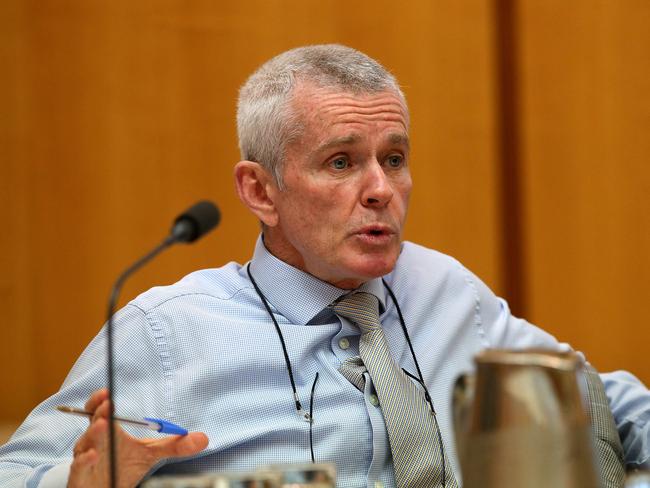 Senator Malcolm Roberts: Government Covering Up Mass Covid Vaccine DeathsSenator Malcolm Roberts has raised the alarm after uncovering evidence that governments around the world are aware that Covid mRNA shots are killing people. According to Roberts, the Australian government has been scrambling to cover up the mass deaths caused by the injections.As part of the effort, the government has been "deliberately suppressing doctors" from reporting vaccine deaths, the top senator reveals.Roberts says that governments around the world all know about vaccine harms and that they are "killing people." According to the Australian Bureau of Statistics (ABS), in 2022, 174,717 deaths occurred.This figure is 22,886 (15.1%) more than the historical average. A growing number of experts and studies have confirmed that this spike was caused by the Covid mRNA shot.-Lena Petrova--- Foreign Minister of Hungary Exposes the Hypocrisy Behind Western SanctionsThey buy Russian oil through India.--For Henry Makow addicts and other depressives, I will be interviewed Thursday at 12 pm EST--
Senator Malcolm Roberts: Government Covering Up Mass Covid Vaccine DeathsSenator Malcolm Roberts has raised the alarm after uncovering evidence that governments around the world are aware that Covid mRNA shots are killing people. According to Roberts, the Australian government has been scrambling to cover up the mass deaths caused by the injections.As part of the effort, the government has been "deliberately suppressing doctors" from reporting vaccine deaths, the top senator reveals.Roberts says that governments around the world all know about vaccine harms and that they are "killing people." According to the Australian Bureau of Statistics (ABS), in 2022, 174,717 deaths occurred.This figure is 22,886 (15.1%) more than the historical average. A growing number of experts and studies have confirmed that this spike was caused by the Covid mRNA shot.-Lena Petrova--- Foreign Minister of Hungary Exposes the Hypocrisy Behind Western SanctionsThey buy Russian oil through India.--For Henry Makow addicts and other depressives, I will be interviewed Thursday at 12 pm EST-- -
Site: Zero HedgeCoalition Of States Sue Biden Admin, California Over Electric Vehicle MandatesTyler Durden Wed, 05/15/2024 - 14:45
Authored by Katabella Roberts via The Epoch Times,
A coalition of Republican-led states is suing the Biden administration and the State of California in an attempt to prevent new electric vehicle mandates on truck owners and operators throughout the country from going into effect.
Two legal challenges were filed over the new emissions rules, Nebraska Attorney General Hilgers said in a statement on May 13.
They include a petition for review filed by a coalition of 24 states in the U.S. Court of Appeals for the D.C. Circuit which challenges the Biden administration’s new regulation setting stronger greenhouse gas emissions standards for heavy-duty vehicles.
That petition lists the U.S. Environmental Protection Agency (EPA) and its administrator Michael Regan as defendants.
In the legal filing, plaintiffs argue the EPA’s rule imposing stringent tailpipe emissions standards for heavy-duty vehicles effectively forces manufacturers to produce more electric trucks and fewer internal combustion trucks.
The EPA has said the new rules, which are set to take effect for model years 2027 through 2032, are needed to help combat climate change and will help avoid up to 1 billion tons of greenhouse gas emissions over the next three decades.
However, the infrastructure needed to support such vehicles is “virtually nonexistent” and they also have shorter ranges and require longer stops, according to Mr. Hilgers.
The new regulation will also negatively impact the economy and put extra pressure on power grids, according to the lawsuit.
Electric Trucks ‘More Expensive’
A separate coalition of 17 states and the Nebraska Trucking Association also filed a lawsuit in the U.S. District Court for the Eastern District of California seeking to block a package of regulations that they say are “targeting trucking fleet owners and operators.”
That lawsuit lists the EPA and the California Air Resources Board as defendants.
Plaintiffs in the lawsuit are challenging a string of California regulations called “Advanced Clean Fleets” which aims to “accelerate a large-scale reduction in tailpipe emissions focusing on zero-emissions medium- and heavy-duty vehicles,” according to the California Air Resources Boards’s (CARB) official website.
The rules would ban big rigs and buses that run on diesel from being sold in California starting in 2036.
According to the CARB, the new regulation will save around $26.5 billion in statewide health benefits from criteria pollutant emissions and save fleet owners $48 billion in operating costs.
However, those regulations force truckers in and out of California to “retire their internal-combustion trucks if they want to come to California” and “transition to more expensive electric trucks” by 2035, the states wrote in the lawsuit.
The regulations could also damage the U.S. economy, they added.
Rules Could Impact ‘Untold Number of Jobs’
According to Mr. Hilgers, the rule also applies to “fleets that are headquartered outside of California if they operate within California” which he argues could have significant nationwide effects on the supply chain.
Both lawsuits argue that the Biden administration and California regulators are exceeding their respective authorities in introducing the rules.
The multi-state coalitions are being led by Nebraska.
The state is joined in its legal challenge by attorneys general from Alabama, Arkansas, Georgia, Idaho, Indiana, Iowa, Kansas, Louisiana, Missouri, Montana, Oklahoma, South Carolina, Utah, West Virginia, and Wyoming.
Additionally, the Arizona State Legislature and the Nebraska Trucking Association have joined the lawsuit.
In a statement, Mr. Hilgers claimed California and an “unaccountable EPA” are “trying to transform our national trucking industry and supply chain infrastructure.”
“This effort—coming at a time of heightened inflation and with an already-strained electrical grid—will devastate the trucking and logistics industry, raise prices for customers, and impact an untold number of jobs across Nebraska and the country,” he continued. “Neither California nor the EPA has the constitutional power to dictate these nationwide rules to Americans.”
The Nebraska attorney general added that he was proud to be leading efforts to “stop these unconstitutional attempts to remake our economy.”
The Epoch Times has contacted the EPA and the CARB for comment.
-
Site: Zero HedgeAmerica's 'Bunker-Buster' Bomb Production To Triple As World Fractures Into Dangerous Multi-Polar StateTyler Durden Wed, 05/15/2024 - 14:25
Munitions stockpiles are running low across the West, whether in Europe or the United States. Supplying Ukraine with arms in its war against Russia has forced Western militaries and defense firms to either make plans or begin boosting the production of bombs, missiles, artillery shells, and suicide drones.
On Tuesday, the US Air Force announced a tripling in its monthly production of the giant 30,000-pound Massive Ordnance Penetrator, known as the "bunker-buster." It's the largest non-nuclear bomb the US has in its stockpiles and can only be deployed by a Northrop Grumman B-2 Spirit stealth bomber.
Bloomberg was among the first to report an increase in bunker-buster bomb production, citing a USAF statement: "Will significantly increase production as needed."
Officials at the facility told Bloomberg journos during a March tour by General Charles Brown, chairman of the Joint Chiefs of Staff, that new bunker-buster bomb production could rise from currently two, to as many as six or possibly eight bombs per month.
The Oklahoma plant is being upgraded to support higher production of 2,000- to 30,000-pound bombs. A ribbon-cutting ceremony is scheduled for July 30, and production ramps are expected soon after.
Ukraine isn't the only conflict area draining Western supplies of munitions. The US has been supplying Israel with bombs and missiles as the conflict with Hamas rages on. And there's a further risk of broadening conflict in the region with Iran. Let's not forget China and the South China Sea.
Maiya Clark of the Heritage Foundation recently explained the US military-industrial complex can't just turn on a switch and produce more bombs:
"Once the stockpiles are expended, the Department of Defense cannot simply buy more munitions — manufacturing takes years."
Clark continued:
"Ramping up production after operating at a smaller capacity takes time; contractors have found that it will take them around two years to deliver new Javelins to the Department of Defense (DOD), for example."
She warned:
"This creates a problem in the present—after all, the war in Ukraine could continue for some time—and it illuminates what could potentially be a much larger problem in the future. The lack of surge capacity creates the risk that, in a protracted war, the US would deplete its stockpiled munitions before replacements could be manufactured and delivered."
This all plays into an important theme of soaring global military spending as the world fractures into a chaotic, multi-polar state. There's a bull market in defense.
-
Site: Zero HedgeStimulus Today Costs Dearly TomorrowTyler Durden Wed, 05/15/2024 - 14:05
Authored by Michael Lebowitz via RealInvestmentAdvice.com,
Since the pandemic-related bazooka of fiscal stimulus, the outstanding Federal debt has risen appreciably. In nominal dollar terms, the recent debt surge is mindboggling. However, the increase is on par with the government’s negligent ways over the last fifty years.
The red bars show the percentage increase in debt starting in 1966. The bars reset to zero every time they hit 50%. The numbers to the left of each series of bars correspond to the number of quarters it took for every 50% increase.
Over the last sixteen quarters, 2020 through 2023, the outstanding federal debt has risen by 46%. Of the 11 times the debt has increased by 50% since 1966, five occurred over 15 quarters or less.
That said, the repercussions of relying on stimulus for economic growth and growing debt faster than the ability to pay for it have significant economic consequences. The recent surge in debt will only further handicap our economy and prosperity in the future.
There are predominantly two ways our growing debt load negatively impacts economic growth, as we will share.
#1 Manipulated Interest Rates Cripple Capitalism
Growing debt faster than one’s income is a Ponzi scheme. No matter how politicians sugarcoat fiscal stimulus, there are no two ways around such a characterization. Individuals and corporations that run such a scheme ultimately end up bankrupt. The same holds for governments, but they tend to have much longer runways.
The Federal Reserve allows the government to perpetuate its Ponzi scheme. The Fed keeps borrowing costs lower than they should be through lower-than-market interest rates and asset purchases.
Not only is the growing ratio of debt to income problematic, but it is also a sure sign that the debt in aggregate is used for unproductive purposes. In other words, the debt costs more than the financial benefits it provides. If it were productive debt, income or GDP would rise more than the debt.
In the long run, unproductive debt reduces a nation’s productivity, aka economic potential.
Negative Real Rates And QE
A lender or investor should never accept a yield below the inflation rate. If they do, the loan or investment will reduce their purchasing power.
Regardless of what should happen in an economics classroom, the Fed has forced a negative real rate regime upon lenders and investors for the better part of the last 20+ years. The graph below shows the real Fed Funds rate (black). This is Fed Funds less CPI. The gray area shows the percentage of time over running five-year periods in which real Fed Funds were negative. Negative real Fed Funds have become the rule, not the exception.
Starting in 2008, with QE, the Fed began using its balance sheet to manipulate interest rates further. Currently, the Fed holds $8 trillion in Treasury and mortgage-backed securities. Their Treasury holdings account for almost 25% of all Treasury securities outstanding to the public.
By reducing the supply of bonds on the market, they effectively lower interest rates below where the free market would price them. This makes fiscal stimulus more appetizing for politicians and, by default, encourages even greater federal debt loads.
Like the Fed’s negative real rate interest rate policy, QE also reduces interest rates, allowing for more unproductive federal and private sector debt.
#2 Negative Multiplier
As we note, debt increasing faster than economic growth proves that borrowing and spending are unproductive. Unproductive government debt or private sector debt also results in a negative economic multiplier. Essentially, the ultimate expense of the debt outstrips its benefits over the long run.
Economists define the multiplier effect as the change in income divided by the change in spending. Over an extended period, if the change in spending is more significant than the change in income, the effect of said spending is negative. Replace GDP for income and government debt for spending to compute the government’s spending multiplier.
Multiplier = Change Income / Change Spending
Government Multiplier = Change GDP / Change Debt Outstanding
To help appreciate the negative multiplier, let’s consider the two rounds of stimulus checks sent to the public during the pandemic. Consumers and businesses spent a large percentage of the funds on goods or services that no longer provide economic benefit. The initial result of the direct stimulus was a massive boost to economic activity. Three to four years later, the economic growth spurt is finished, and the debt and its annual interest costs remain. The interest on the debt is capital that will not be put to productive use.
Yesterday’s tailwind is slowly becoming tomorrow’s headwind.
There are other economic considerations as well.
Ricardian Equivalence
This economic theory states that when individuals anticipate tax increases to finance current and future government spending, they increase their savings to offset the expected tax burden. Therefore, any increase in government spending financed by debt may not stimulate consumption and investment, potentially resulting in a negative multiplier effect.
Crowding Out
High levels of government borrowing can lead to crowding out of private investment. This occurs when government borrowing forces higher interest rates, making it more expensive for businesses and individuals to borrow for investment. Further, as banks are asked to hold more government debt, they have less ability to lend to the private sector. Consequently, private investment, likely to be more productive than government spending, may decline.
Capitalism Is Eroding
The graph below shows why capitalism matters. It plots the Heritage Foundation’s Index of Economic Freedom, a measure of capitalism, versus the average family wealth for 137 countries. As shown, economic freedom and wealth have a strong positive correlation.
With that relationship in mind, government spending is a key component of the economic freedom index. Massive government stimulus spending reduces our index score. Further, while not a part of the score, manipulation of free market interest rates also detracts from the benefits of capitalism. As our index score falls, denoting the retreat from capitalism, so does our wealth.
Summary
Nothing is free, it’s just a question of how it’s paid for. While the government spends like there is no tomorrow and the Fed does everything in its power to help them, we must understand that the longer-term consequences of their actions are weaker economic growth and growing wealth disparity, as we discuss in Fed Policies Turn The Wealth Gap Into A Chasm. To wit:
QE may have served as an emergency way to add bank reserves to the system and boost confidence. However, its continued use, even during economic prosperity periods, only makes the wealth gap wider.
We should take the matter personally because, as we have shown, there is a strong link between government borrowing and our prosperity. While the cost of deficits may not be higher taxes, it does show up invisibly in lesser wages and wealth than we otherwise could attain. Any wonder why millennials are on track to be the first generation to fail to exceed their parents in income?
-
Site: Zero HedgeGoldman Warns Copper "Is Having A Cocoa Moment"Tyler Durden Wed, 05/15/2024 - 13:45
In a Goldman Materials note this morning covering China and copper, analyst James McGeoch pointed out that the base metal is "having a Cocoa moment."
Comex copper futures for July delivery jumped nearly 5% to $5.12 a pound, exceeding an earlier record for the most active contract set in March 2022. According to Bloomberg, the short squeeze "prompted a scramble to divert metal in other regions to US shores."
Comex copper futures are breaking out.
Comex copper futures are in one of the biggest-ever backwardation periods - a clear indication of severely tight supply.
"Short spread and futures holders are being squeezed," Michael Cuoco, head of hedge fund sales for metals and bulk materials at StoneX Group, told Bloomberg.
Here's more commentary on the copper squeeze in the US via McGeoch:
Copper got funky on LME close, the …Copper we see arb positions driving (short CMX/long LME basis producer hedges and other factors) and have seen big unwinds on this, the spread got to +$900 (o’night it got to 1200t….saw people shorting it at $600 and getting stopped out literally hours later). There is also a seemingly large Chinese/Asian position (the arb CMX/SHFE getting bought again over night). The financial flows are typically more CMX heavy (options and outrights) and the change in liquidity. mkt structure is compromised as there is not that much Copper available on CMX to be delivered. For the next two weeks its likely to stay unhinged, as the positions are all against July expiry and we are unsure how it solves ahead of that, ie the delivery mechanism to solve.
Short-squeeze in commodities markets occurs when traders are forced to exit positions due to increasing margin calls or the threat of having to deliver physical material.
Jia Zheng, head of trading at Shanghai Dongwu Jiuying Investment Management, explained that the surge in the July contract was partly driven by a squeeze on traders involved in reverse arbitrage, where they short Comex and go long on Shanghai copper.
This coincides with dwindling copper mining supplies and a surge in AI data center investments across the US. Additionally, the US and UK have banned Russian aluminum, copper, and nickel.
ZH's The Market Ear penned a note earlier indicating the parabolic price action in copper is getting overextended.
-
Site: AsiaNews.itThe death toll reached 300, while the Taliban are unable to report the number of missing. Several residents said they have lost everything, while pneumonia and diarrhoea are spreading among children due to the lack of drinking water. The delivery of aid is complicated by the collapse of bridges and roads. The dry winter made the soil impermeable, causing landslides and flooding.
-
Site: Zero HedgeBitcoin Paves The Way For A New Era Of Free Market BankingTyler Durden Wed, 05/15/2024 - 13:25
Authored by Nick Giambruno via InternationalMan.com,
Hal Finney was a pioneering computer scientist, cryptographer, and prominent Cypherpunk who played a crucial role in the early development of Bitcoin.
He was one of the first supporters, contributors, and adopters of Bitcoin.
In short, Finney was a visionary who understood Bitcoin’s potential before almost everyone else.
In December 2010, Finney wrote:
“There is a very good reason for Bitcoin-backed banks to exist, issuing their own digital cash currency, redeemable for bitcoins.
Bitcoin itself cannot scale to have every single financial transaction in the world be broadcast to everyone and included in the blockchain.
There needs to be a secondary level of payment systems which is lighter weight and more efficient. Likewise, the time needed for Bitcoin transactions to finalize will be impractical for medium to large value purchases.
Bitcoin backed banks will solve these problems. They can work like banks did before nationalization of currency. Different banks can have different policies, some more aggressive, some more conservative. Some would be fractional reserve while others may be 100% Bitcoin backed. Interest rates may vary. Cash from some banks may trade at a discount to that from others.
I believe this will be the ultimate fate of Bitcoin, to be the ‘high-powered money’ that serves as a reserve currency for banks that issue their own digital cash. Most Bitcoin transactions will occur between banks, to settle net transfers.
Bitcoin transactions by private individuals will be as rare as… well, as Bitcoin based purchases are today.”
Bitcoin banking takes the “free banking” concept and makes enormous improvements.
The free banking era in the US lasted from the 1830s to the early 1860s. Minimal regulations and the absence of a central bank characterized it.
Banks were permitted to issue their own currency, known as banknotes, that circulated as money. These banknotes were supposed to be redeemable on demand for the gold or silver reserves they represented.
The value of these banknotes fluctuated based on the perceived solvency of the issuing bank and the distance from the bank itself, as people were less willing to accept notes from distant or unknown banks.
Similarly, Bitcoin banks hold BTC as a reserve asset and issue digital eCash notes redeemable for Bitcoin (either onchain or on the Lightning Network) anytime on demand. These eCash notes are like digital versions of the gold-backed banknotes during the free banking era, but with several significant improvements.
The best way to think of Bitcoin banking is as a massive upgrade to the existing custodial banking models.
Below are a few benefits.
-
Private transactions
-
Fungibility between different eCash notes
-
Low barrier to entry
-
Minimizing trust
-
Low switching costs
-
Convenient and easy to use
-
Redeemable at any time
-
Backup and recovery of funds
First, we have to understand the basic structure of how a Bitcoin bank could work.
Bitcoin banks are likely to take the form of a federation.
This model reduces trust by distributing control over a group of people or entities. This federated group issues, verifies, transfers, and administers the digital eCash notes—but only if there is consensus among the federation members to take these actions.
The main idea of a federation is that you are reducing the amount of trust needed to run a system by distributing control.
The federation holds its Bitcoin reserves in a multisig wallet, a special type of wallet that requires multiple people’s authorization to spend the funds. Think of it as a safe that requires multiple keys to open.
There will likely be a wide variety of Bitcoin banking federations. Some will be small and focused on local communities, while others will be large and geared towards providing commercial-scale operations.
Naturally, there are risks with any system that depends on trust or third parties.
Bitcoin banks have risks, too, but the main point is that they significantly reduce these risks compared to centralized systems. Specifically, you have to trust that the members of the federation will not form a majority quorum to steal the Bitcoin held in the multisig wallet that backs customer deposits or debase their eCash notes. I’ll discuss these and other risks later.
Here’s how it works.
Someone who wants to obtain eCash notes will first download the software to interact with the federated Bitcoin bank. Then, you will send Bitcoin (onchain or Lightning) to the federated Bitcoin bank and receive eCash notes in return.
With a federated Bitcoin bank, you can also sell something and receive eCash notes in your wallet. You could also earn eCash notes from your employer as they deposit your salary into your wallet, just like they do with your traditional bank account today.
Bitcoin banking federations are meant to be interoperable with the Lightning Network—an open, peer-to-peer network built on Bitcoin that allows for nearly instantaneous transactions and almost zero fees. You can use eCash notes anywhere that Lightning is accepted.
With Bitcoin banking federations, you can withdraw to another federation or your own Bitcoin wallet (onchain or Lightning) anytime on demand.
Unlike self-custody wallets, Bitcoin banking federations can help users recover their funds if they lose access to their wallets.
Suppose you want to spend your eCash with a merchant with a different Bitcoin banking federation. This is where the Lightning Gateways come in. They are market makers who provide liquidity between Bitcoin (onchain and Lightning) and various eCash notes issued by different banking federations for a small fee.
When you send an eCash payment to a merchant at a different banking federation, you will send the eCash to a Lightning Gateway, which will then send the correct eCash to the merchant. Or suppose the Lightning Gateway doesn’t have liquidity in the merchant’s eCash notes. In that case, it will find another Lightning Gateway that does, send that Lightning Gateway a Lightning payment, and then the second Lightning Gateway will forward the payment to the merchant in its eCash note.
In short, Lightning Gateways will provide liquidity that increases the fungibility between numerous eCash notes issued by different Bitcoin banking federations.
It’s like seamlessly sending a payment from PayPal to a user on Cash App, Venmo, or another platform.
If this seems complicated, don’t worry. This just explains how a Bitcoin banking application on your phone would work under the hood. It does all of this in the background without your input. For the user, it will be a seamless experience of simply scanning a QR code and authorizing a payment on a phone application.
Most internet users do not know how TCP/IP or SSL works, but they use it daily in the background as they browse the web. I expect a similar dynamic with Bitcoin, the Lightning Network, federated Bitcoin banks, and various Bitcoin-backed eCash notes.
The graphic below does an excellent job illustrating how transactions with different eCash notes from different federated Bitcoin banks would work. It’s from Eric Yakes, author of The 7th Property: Bitcoin and the Monetary Revolution, which I consider the best resource for understanding the mind-bending potential of Bitcoin banking.
Source: Eric Yakes
Bitcoin Banking and Privacy
Financial privacy is one of the biggest benefits federated Bitcoin banks will offer over traditional custodians.
Chaumian eCash is what will enable it.
The name is a nod to cryptographer and Cypherpunk David Chaum, who created a way to provide secure and anonymous online transactions, much like using cash in the physical world.
With Chaumian eCash, users can spend money online without revealing their identity or transaction details to anyone, including the recipient or the federated Bitcoin banks and Lightning Gateways involved in the transaction.
One of the key features of Chaumian eCash is its use of blind signatures, a cryptographic technique that allows a federated Bitcoin bank to sign and validate eCash notes without actually seeing the transaction details.
In other words, a federated Bitcoin bank knows a valid eCash note has been issued and spent, but it doesn’t know who spent it or on what. Further, they will not be able to know individual account balances nor the identity of those who redeem an eCash note for Bitcoin.
Those running a federated Bitcoin bank will only be able to know the total amount of BTC held in reserves in the federation’s multisig wallet and the total amount of eCash notes outstanding for redemption.
This is a revolutionary improvement in financial privacy over existing custodial solutions, which offer no privacy whatsoever.
The strong privacy protections that Chaumian eCash offers enable another critical benefit: censorship resistance.
With PayPal, Venmo, traditional bank accounts, and other traditional custodial financial services, they can block a payment or cancel your account whenever they want under any pretext they find convenient.
With federated Bitcoin banks, they are unable to censor or block transactions. Thanks to the strong privacy protections from Chaumian eCash, they can’t know the details of each transaction, so they can’t block or prevent them.
In short, with federated Bitcoin banks and Chaumian eCash, we have, for the first time, a convenient custodial solution that is resistant to censorship.
Fedimint
Perhaps the most promising implementation of federated Bitcoin banks is Fedimint.
Fedimint is an open-source protocol that allows anyone to create a federated Bitcoin bank with a few clicks.
Using Fedimint to set up a federated Bitcoin bank costs nothing. No licenses or permission is needed.
In short, Fedimint could do to the banking cartels what Uber did to the taxi cartels.
Rug Pull Risk
Like all Layer 2 solutions, federated Bitcoin banks are a trade-off. They are less secure than self-custody but offer more convenience, ease of use, and privacy, among other benefits.
Specifically, you have to trust that the members of the federation will not collude to form a majority quorum to steal the Bitcoin held in the multisig wallet that backs customer deposits.
The size of that quorum will vary between different federations. The larger the quorum, the more distributed the risk.
It could be as small as a 2-of-3 setup, meaning there are three authorized users, and two are needed to spend the Bitcoin reserves in the federation’s multisig wallet, or as large as a 99-of-100 and anything in between.
Rug pull risk will naturally vary between different banking federations.
Local Bitcoin banking federations could mitigate this risk because known community members would operate them. They would likely suffer serious legal, reputational, and physical consequences for stealing their neighbors’ money.
With larger commercial Bitcoin banking federations, depositors could mitigate this risk with private insurance, rating agencies, and other market solutions.
In any case, ongoing due diligence of federated Bitcoin banks will be important. Depositors will have to do this or find someone to do it.
Centralization Risk
Trusted third parties are centralized vulnerabilities. Governments can capture and coerce them.
This is precisely how governments used the gold standard to bootstrap the fiat currency system into existence.
First, people used physical gold as money. Then, to scale, they necessarily turned to third parties, like banks, that stored gold and issued gold IOUs to facilitate trade. Governments captured those third parties and then gradually removed the gold backing from the IOUs until they were nothing more than confetti. In short, that is how the fiat currency system was born.
Could something similar occur with Bitcoin?
Bitcoin has a great chance of avoiding this fate because of its extreme portability and decentralization.
In the past, government agents could simply show up at a bank and demand they hand over their physical gold reserves to a centralized depository.
Let’s presume government agents would even be able to identify someone running a federated Bitcoin bank.
What could they do?
If the federated Bitcoin bank had been set up with sufficient geographical and political diversification, there’s not much they could have done. They could, at most, detain the one person in their jurisdiction running the federated Bitcoin bank.
Let’s say there was a quorum of 7-of-10, and the other nine federation members were located in different political jurisdictions. The Bitcoin reserves would be safe because the one person the government agents detained could not reach a quorum to spend them. The other nine federation members could then take further defensive measures to ensure the safety of the federation’s BTC.
In short, it would be exponentially more challenging for governments to capture, coerce, and centralize federated Bitcoin banks than it was for them to do the same with banks under the gold standard.
Hal Finney noted that there will likely be a market for the various eCash notes, and their values will fluctuate depending on how the market evaluates their risk. I expect eCash notes with more exposure to riskier jurisdictions to trade a discount to their Bitcoin reserves to reflect this risk.
Remember, with the open-source Fedimint protocol, anyone can easily form a federated Bitcoin bank. This low barrier to entry also helps mitigate the centralization risk.
With the traditional banking system—and banking under the gold standard—the government needs to control a relatively small number of banks and entities. With federated Bitcoin banks, anyone could potentially operate one—permission from a centralized banking cartel is not required.
Here’s the bottom line.
If governments attempted to capture, centralize, and coerce federated Bitcoin banks, I believe it would be a fruitless game of whack-a-mole.
Debasement Risk
There is also a risk that the people running a federated Bitcoin bank could secretly collude to debase their eCash notes.
Consider the example of the bankrupt exchange FTX, which created many more claims to Bitcoin than the actual BTC held in reserve. FTX account holders who thought they owned Bitcoin and did not withdraw were left holding the bag.
I think several factors will mitigate this risk with federated Bitcoin banks.
First, the cost of switching to another federated Bitcoin bank or withdrawing is low and can occur anytime. The ease at which a potential bank run could occur should put fear in the hearts of those attempting any debasement scheme.
I expect other market-based incentives, such as memberships in exclusive clubs for Bitcoin banks with the best reputations and other reputation systems, will help minimize the debasement risk.
The low barrier to entry to creating a federated Bitcoin bank and low switching costs means there will likely be cut-throat competition. If the market suspects a Bitcoin bank is debasing its eCash notes, it will be an excellent opportunity for a competitor to grab market share.
Likewise, speculators could play an important role. They will be there to short the eCash notes of Bitcoin banks suspected of engaging in debasement.
Conclusion
Bitcoin is a revolutionary innovation for the base monetary layer and provides a foundation for a new financial system.
Consider the implications of the trustless Bitcoin base layer in combination with the Lightning Network, federated Bitcoin banks issuing Chaumian eCash, and other trust-minimized Layer 2 solutions for scaling and convenience.
The amount of value they could unlock is astonishing. It could usher in a new era of free banking worldwide.
While the Bitcoin megatrend is no longer in its infancy, it is still early, and you are not too late. Bitcoin has a long way to go before it emerges as the world’s dominant money and displaces the traditional financial system.
I have little doubt The Bitcoin Supremacy will be one of the biggest financial trends of the decade. I believe that patient investors will reap substantial gains.
That’s why I’ve just released an urgent PDF report revealing three crucial Bitcoin techniques to ensure you avoid the most common—sometimes fatal—mistakes.
Check it out as soon as possible because it could soon be too late to take action. Click here to get it now.
-
-
Site: LifeNews
The Biden administration has thrown yet another pro-life American in prison for protesting abortion.
Thanks to Joe Biden’s politicized Justice Department, pro-life advocate Herb Geraghty has been sentenced to 34 months in prison under the FACE Act just for engaging in a peaceful protest inside an abortion center.
Like fellow pro-life advocate Lauren Handy, Darnel was found guilty on all counts the Biden administration brought against them for allegedly violating the FACE law.
In a previous interview, Darnel called it an “honor” to be arrested for saving babies from abortions.
“FACE is a crime, but it shouldn’t be a crime because abortion shouldn’t be tolerated,” he said in an interview with Catholic News Agency (CNA). “Except for the unjust execution of Christ, abortion is the worst thing that’s ever happened in the history of the world.”
Darnel said he lives in “a nation that murders kids” and attributed his 14-year “quasi-full time” pro-life work to his evangelical Christian faith. “How can I say I love Christ and not respond with extreme zeal, extreme action, and drastic measures to this holocaust?”
Those pro-lifers on trial conducted a rescue at the Washington Surgi-Clinic operated by the notorious late-term abortionist Cesare Santangelo who was busted by a LiveAction undercover investigator for admitting that he would not help a child with life-saving efforts if he or she survived a late-term abortion. He emphatically stated that a nearby hospital’s efforts to save the life of a child he was trying to abort was “the stupidest thing they could have done.”
Lauren Handy, Herb Geraghty, Darnel and others cited those videos as the reason for the rescue and protest at the abortion business because of the concern babies might be left to die. They chained themselves to the entrance of the abortion center in an attempt to stop abortions.
The rescuers were given 115 aborted babies by the driver of a medical waste van outside Santangelo’s late-term abortion facility. The babies were well-developed – second and possibly third trimester. Their remains are still in a vault at the D.C. medical examiner’s office.
In October 2020, about two months after the remains were obtained, the nine pro-lifers blocked the entrance of the abortion facility and protesting abortion. Darnel filmed the protest he participated in alongside Handy and the other convicted activists.
However, U.S. District Judge Colleen Kollar-Kotelly, a Clinton nominee, would not allow the video to be used as evidence. She also prohibited the defendants from arguing their actions were protected by the First Amendment or were committed in defense of a third person, unborn children.
“This is a clear abuse of power and a sign that the Biden administration is using the Department of Justice to attack political targets—particularly those of us who believe in the right to life for all human beings,” Geraghty, a member of the Progressive Anti-Abortion Uprising, told The Daily Signal late last year.
Yesterday, another pro-life advocate who participated in the protest, John Hinshaw, was sentenced for 21 months and will get credit for 9 months served. And pro-life advocate Will Goodman was sentenced to 27 months in prison for his role in the 2020 protest.
REACH PRO-LIFE PEOPLE WORLDWIDE! Advertise with LifeNews to reach hundreds of thousands of pro-life readers every week. Contact us today.
If the pro-life advocates were environmental activists or a leftist supporting Hamas, their sit-in at an abortion business would have earned her a misdemeanor charge and maybe a small fine. But because she is a pro-life advocate protesting abortion, the Biden administration used the FACE Act to prosecute her for supposedly blocking access to abortion.
Even though the law, which abrogates the free speech rights of pro-life Americans, has rarely been used, the Biden administration pushed for putting several pro-life advocates in prison for over a decade for protesting abortion. Biden officials misused the law to push for the highest penalties, reserved for violent criminal behavior, to prosecute peaceful pro-life Americans who merely exercised their free speech rights.
Handy, a Catholic, is a well-known pro-life voice on the political left. She was the primary organizer and leader of the peaceful protest sponsored by Progressive Anti-Abortion Uprising that led to the ongoing court cases.
In a statement before the ruling, Handy shed some perspective on being jailed for her pro-life activism.
“It has been close to 9 months since I was abruptly ripped from my community. This has led me to think long and hard on what to say about my sentencing today in federal court. Some drafts were angry and righteous while most were just a tearstained longing for my loved ones back home. Yes, this time has been challenging but I refuse to be jaded. Why? Because life goes on… even in jail. So I might as well continue to love and cry and scream and dance. That is joy. The feeling of being fully alive without shame. Which is something no court can take from me. So today, I am at peace with myself and my future. I will go into court with my head held high and my heart open.”
PAAU condemned the ruling today, telling LifeNews that Handy has been wrongly sentenced to 4 years & 9 months in federal prison for an act of peaceful civil disobedience to prevent federal crimes such as partial birth abortion and infanticide.
The condemnation of the ruling was swift.
“Today’s outrageous 57-month sentence for a progressive pro-life activist is a stark reminder: Biden’s DOJ is fully weaponized against pro-life American citizens, and they are using the FACE Act to do it,” Rep. Chip Roy said in a statement. “House Republicans should defund the DOJ weaponization, repeal the FACE Act, and stand up for the freedoms that we campaign on.”
Caroline Smith, Executive Director of the Progressive Anti-Abortion Uprising said, “The abortion industry wants to scare, intimidate, fear-monger, and isolate us. But what they don’t know is we have a radical hope that goes beyond the concrete walls of both prisons and abortuaries. I believe the oppression that the DOJ is expressing right now will absolutely backfire on them in the near future. Oppression always backfires, especially when your motivation is blood money. Abortion is murder, and fetuses are people, and nothing will stop Rescue.”
PAAU Founder Terrisa Bukovinac said “Today the Biden Administration and Merrick Garland’s DOJ have reached a new level of tyranny. There is no other social justice movement in our nation who’s activists are subject to years in federal prison for nonviolent resistance. This blatant viewpoint discrimination has incalculable consequences for babies, their parents, those who defend them, and for peaceful activists across movements worldwide. I continue to stand by Lauren and the other 8 defendants who risked their freedoms to stand in defense of the least of us.”
A total of 10 pro-life advocate face the federal criminal charges after they were arrested and indicted for allegedly violating the Freedom of Access to Clinic Entrances Act (FACE) in 2020 at the Washington Surgi-Clinic in Washington, DC. That’s a late-term abortion facility suspected of breaking federal law by performing partial birth abortions and illegally allowing babies born aluive after failed abortions to die.
The defendants – often called “rescuers” by fellow members of the pro-life movement – partook in a 2020 peaceful protest against a notorious Washington, D.C. abortuary that performed late-term abortions.
Last year, all nine were found guilty of violating the controversial Freedom of Access to Clinic Entrances (FACE) Act. They each face a sentence of up to 11 years in federal prison. The FACE (Freedom of Access to Clinic Entrances) Act prohibits individuals from attempting to injure, intimidate, or interfere (by use of force, threat of force, or physical obstruction) with anyone obtaining or performing an abortion.
The indictment in the case says that on Oct. 22, 2020, 10 individuals “conspired with one another and with others known and unknown to obstruct access” to the Washington Surgi-Clinic in Washington, D.C.
“It was the purpose of the conspiracy to create a blockade to stop the clinic from providing and patients from obtaining reproductive health services,” the indictment alleges. The indictment says the defendants used “deception” to gain access to the clinic, used “force” to enter, and barricaded themselves inside with “ropes and chains.”
A video of the rescue shows the pro-life advocates praying and singing inside the abortion facility and refusing to leave so abortions could end the lives of unborn children.
Stephen Crampton, senior counsel for the nonprofit legal firm Thomas More Society, says the cases are clearly political persecution.
“They waited a year and a half to file this action,” Crampton said. “If indeed this was some sort of dire offense and the defendants ought to be incarcerated, why in the world, does the government wait a year and a half to file the charges?”
“The climate activists were out there [in D.C.] gluing their hands to the streets, shutting down traffic and everything, you think there’s any chance the feds are going to prosecute those people or try to put them in prison for 11 years?” he asked.
He also told Fox News that finding a fair jury was practically impossible considering that D.C. is the “most pro-abortion city in America.”
The pro-lifers on trial conducted a rescue at the Washington Surgi-Clinic operated by the notorious late-term abortionist Cesare Santangelo who was busted by a LiveAction undercover investigator for admitting that he would not help a child with life-saving efforts if he or she survived a late-term abortion. He emphatically stated that a nearby hospital’s efforts to save the life of a child he was trying to abort was “the stupidest thing they could have done.”
Lauren Handy and Herb Geraghty cited those videos as the reason for the rescue and protest at the abortion business because of the concern babies might be left to die. They chained themselves to the entrace of the abortion center in an attempt to stop abortions.
A pro-life advocate says the charges are wrong because the protests were non-violent.
Caroline Taylor Smith, executive director of PAAU told LifeNews, “This overreaching of power and authority by Biden’s DOJ is egregious and must be stopped. Nonviolent prolife actions should not be a federal crime, and peaceful people with a desire to save lives should not be jailed for over a decade. Some of these Rescuers could be facing death by incarceration. We must repeal the FACE Act now!”
Jonathan Darnel, one of the four pro-life Americans Biden is targeting in this second trial, plead not guilty to the charges.
“I am definitely not guilty of the charges leveled against me, which is rather ironic that I should find myself in this position,” Darnel told Fox News Digital in an interview. “Nevertheless, if a jury finds me guilty of FACE even erroneously, it would be an honor because the kids are worthy of protection.”
Senior Judge Colleen Kollar-Kotely a Clinton nominee, is presiding over the hearings, which are slated to take place at the U.S. District Court for the District of Columbia just a few blocks from the U.S. Supreme Court. The sentencings will continue on Wednesday, May 15, with Herb (born Rosemary) Geraghty at 9:00 a.m., Jonathan Darnel at 11:00 a.m., Jean Marshall at 1:30 p.m., and Joan Andrews Bell at 3:00 p.m. On Friday, May 17, the judge is scheduled to sentence Heather Idoni at 9:30 a.m.
Kollar-Kotely was also originally going to sentence the final defendant, Paulette Harlow, on Friday. However, Harlow’s sentencing was postponed until two weeks later on Friday, May 31, at 1:30 p.m.
Last year, former President Donald Trump promised to support “political prisoners” if he’s elected president. During the Family Research Council’s “Pray, Vote, Stand Summit” in Washington, D.C., Trump vowed to get innocent Americans out of jail for standing up for their beliefs while criminals run rampant.
“I am announcing that the moment I win the election, I will appoint a special task force to rapidly review the cases of every political prisoner who has been unjustly persecuted by the Biden administration,” Trump said.
Trump referenced the convictions of pro-life advocates who now face as many as 11 years in prison for rescuing babies from abortions at a late-term abortion business in Washington D.C.
“If we stand together in this fight, we’re going to defeat Crooked Joe Biden; if he runs — will he make it to the starting gate?” Trump said.

The post Pro-Life Advocate Jonathan Darnel Thrown in Prison for 27 Months for Protesting Abortion appeared first on LifeNews.com.
-
Site: Zero HedgeThe Grain That Feeds The World Is At Risk Of An Upside BreakoutTyler Durden Wed, 05/15/2024 - 13:05
Rice is a staple food for over 3.5 billion people worldwide, especially in Asia, Latin America, and Africa. It's grown in over 100 countries, with 90% of the world's rice produced in Asia. We have been tracking the prices of Thai white rice, which surged to 15-year highs in 2023 and has since consolidated at these highs with risks of a further upside breakout.
According to new data from the Thai Rice Exporters Association, Thai white rice 5% broken, an Asian benchmark, rose nearly 6% to $649 a ton, inching closer and closer to last year's highs. Since early 2022, prices have surged 64%.
We continue to follow Thai rice prices because rice is a critical staple food for billions of people worldwide.
Here are some of the risks we've pointed out in the last few years:
-
Sept. 2022: The Stage Is Being Set For A Massive Global Rice Shortage
-
May 2023: Global Rice Shortage Looms, Set To Be The Biggest In Decades
-
May 2023: Thai Rice Crop In Crosshairs Of El Nino As Farmers Are Warned About Water Shortages
-
July 2023: "So It Begins ": US Supermarkets Hit With Buying Panic As India Bans Rice Exports
-
August 2023: Rice Crisis Sends Prices To Highest Levels Since 2008
-
September 2023: "Go Easy On The Curry": HSBC Warns Rice Crisis Reminiscent Of '2008 Asian Food Price Scare'
-
November 2023: Rice Nears 15-Year High As Global Food Crisis 'Much Worse Than 2008'
The good news is that global food prices measured via the UN's Food and Agriculture Organization print below the 2010 Arab Spring level, an area of risk where high food prices cause social instabilities in third-world countries. However, some of the latest prints show that food inflation could increase.
If prices do surge from here, let's remind readers of this 2008 headline from The Guardian:
Food inflation is certainly not going away. That's evident in the prices of cocoa, OJ, coffee, beef, and many other items at the supermarket.
-
-
Site: Zero HedgeVenezuela Moves "Substantial Quantities" Of Troops To Guyana BorderTyler Durden Wed, 05/15/2024 - 12:45
By Charles Kennedy of OilPrice.com
Venezuela has moved “substantial quantities of [military] personnel and equipment to the border with Guyana amid its territorial dispute over the Essequibo region.
The update comes from the Center for Strategic and International Studies in Washington D.C., which this week released a report on the latest developments in the Venezuela-Guyana dispute.
The think tank talks about an expansion of a military base on Anacoco Island in the area, with new roads and a bridge getting built in the past few months. A local airport is also being expanded, CSIS also said, citing satellite imagery and social media posts.
According to the report’s authors, the activity could be preparation for a “manufactured crisis” before or after Venezuela’s next elections, set to take place in late July.
The Essequibo region encompasses about two-thirds of Guyana’s territory and is where most of its oil resources lie, and the site of massive discoveries and new production by Exxon and partners.
The International Court of Justice previously ruled that Essequibo is part of Guyana, although this is still not recognized by Venezuela. A written agreement was penned in December between the two that denounced the use of force, instead calling for a commission to address the disputes.
However, after a December referendum, in which Venezuelans overwhelmingly voted that Essequibo is part of their country, the government pushed with its annexation attempt. The buildup of troops began in February this year and prompted expectations of an imminent military conflict.
At the time, Caracas said it had the right to shore up its borders in response to U.S. military exercises in Guyana toward the end of the year and the presence of a UK anti-narcotics vessel that is in Guyanese waters. The Venezuelan government has also criticized Exxon for depending on the U.S. military for its security and for its exploitation of Guyana’s oil resources.
-
Site: LifeNews
The Wall Street Journal is raising concern over declining global birth rates, which experts predict will dip below the replacement rate, 2.2, for the first time in human history.
“The world is at a startling demographic milestone,” the outlet reported in a May 13 feature piece. “Sometime soon, the global fertility rate will drop below the point needed to keep population constant. It may have already happened.”
The United Nations’ most recent statistics revealed that the global fertility rate was down to 2.3 in 2021, 0.2 points lower than experts estimated that it was in 2017. The UN has not yet released data for 2022 and 2023.
In its analysis of the downward trend, WSJ cites research from 2021, which found that “state-level differences in parental abortion notification laws, unemployment, Medicaid availability, housing costs, contraceptive usage, religiosity, child-care costs and student debt could explain almost none of the decline.”
Instead, researchers stated that the global declining birth rate is likely the result of a societal change not easily quantified.
The WSJ speculated that the trend may be the result of “a societywide reorientation toward individualism that puts less emphasis on marriage and parenthood, and makes fewer or no children more acceptable.”
Follow LifeNews.com on Instagram for pro-life pictures and videos.
Thanks to “urbanizations and the internet,” WSJ continues, even women living in small villages where traditional gender roles were once strictly observed are now “plugged into global culture,” which tells them that “fewer children and a higher quality of life are the norm.”
As CatholicVote previously reported, recent data from the National Center for Health Statistics showed that birth and fertility rates in the US have plummeted to their lowest levels since they have been recorded. Predominantly blue states have the lowest levels.
While state and federal legislators in the US have not made addressing the issue of declining birth rates an explicit priority, as WSJ observed, countries such as Hungary and Japan have created numerous financial incentives for young people to have more children.
In Hungary, for example, the WSJ notes that women under 30 who have children are exempt from paying personal income tax for the rest of their life. The country also boasts lengthy maternity leave policies and various housing and childcare subsidies.
LifeNews Note: Madalaine Elhabbal writes for CatholicVote, where this column originally appeared.

The post Birth Rates Will Drop Below Replacement Rate for First Time as Underpopulation Crisis Continues appeared first on LifeNews.com.
-
Site: AsiaNews.itWhile the anniversary of the massacre of the students in Beijing will not take place on 4 June in Victoria Park, a group of individual Christians is calling on people to sign a prayer that will be published as an ad in the Christian Times. The text refers to the repression of that time, but also to the one currently underway in Hong Kong.
-
Site: LifeNews
Earlier today, a large crowd gathered at a rally outside Parliament at the start of the biggest Parliamentary battle on abortion in a generation.
MPs will soon be given the opportunity to vote on two pro-life changes to the law: one amendment tabled by Caroline Ansell MP to lower the abortion time limit from 24 weeks to 22 weeks; and another tabled by Sir Liam Fox MP that would bring the abortion time limit for babies with Down’s syndrome in line with the time limit for babies that do not have disabilities. Abortion for Down’s syndrome is currently legal right up to birth.
MPs will also likely have the opportunity to vote on two extreme abortion up to birth amendments that have been tabled by pro-abortion MPs Stella Creasy and Diana Johnson.
The rally, organised by Right To Life UK and a number of other pro-life groups from around the country, told MPs and those present that “we already have an extreme abortion law – we don’t need to make it worse”.
Report Stage of the Government’s Criminal Justice Bill begins today, and MPs are set to debate the two pro-life amendments and two extreme abortion up to birth amendments on day two of Report Stage. The date for day two has yet to be announced.
Follow LifeNews.com on Instagram for pro-life pictures and videos.
No to abortion up to birth
At the rally, Right To Life UK spokesperson Madeline Page said “Make no mistake, contrary to the claims of those promoting these bills that they will not allow abortions later in pregnancy than our 24-week time limit, in effect, if either of these amendments passes they would likely lead to a significant increase in the number of women performing late-term abortions at home, endangering the lives of many more women”.
She explained that if Diana Johnson’s amendment passes and all offences that make it illegal for a woman to perform her own abortion at any point right through to birth are removed, in reality, “self-abortions will become possible up to birth for any reason including abortions for sex-selective purposes, as women could mislead abortion providers about their gestational age”.
“As we all remember, being able to mislead abortion providers is precisely what happened in the tragic case of Carla Foster and baby Lily, whose life was ended when she was only 32 to 34 weeks old in the womb. If this amendment passes, cases like this are more likely to occur and more babies at a late gestation are likely to lose their lives”.
“If Stella Creasy’s amendment passes, key deterrents against late-term abortions will be removed. The effect will likely be very similar to the former amendment – a significant increase in the number of women performing late-term abortions at home, endangering the lives of many more women” she added.
Madeline also described the pills-by-post scheme in which a woman can procure abortion pills without ever having an in-person appointment with a medical professional as “a deeply misguided twist [in which] the state actively enables backstreet abortions”.
A contradiction at the heart of our abortion law
Madeline also pointed out that medical advances over the last 30 years mean that babies are born and increasingly able to survive before the current 24-week abortion limit, but also that the “abortion limit has been stuck at 24 weeks gestation” during this time.
She said that “the most recent annual abortion statistics for England and Wales reveal there were 755 abortions performed at 22 or 23 weeks gestation under Section 1(1)(a) of the Abortion Act”.
“At the same time, there were a total of 261 babies born alive at 22 and 23 weeks before the abortion limit, who survived to discharge from hospital in 2020 and 2021″.
“This means in the same hospital, on the same day, two babies at the same gestational age (22 or 23 weeks gestation) could have very different fates – one could have his or her life deliberately ended by abortion, and the other could be born prematurely and have a dedicated medical team provide the best care they can to try to save his or her life”.
Madeline concluded by urging those present to contact their MPs to support Caroline Ansell’s amendment to lower the abortion limit and saying “These unborn babies at 22 and 23 weeks deserve the protection of law just as those babies born at the same gestation are granted the protection of law outside the womb”.
Spokesperson for Right To Life UK, Catherine Robinson, said “At the moment, a baby at 22 or 23 weeks gestation could be born prematurely and have a dedicated medical team provide expert care to try to save his or her life, while another baby at the same age could have their life deliberately ended by abortion in the same hospital at the same time. This is a contradiction in UK law“.
“That’s why we need to support Caroline Ansell’s amendment to lower the abortion time limit from 24 to 22 weeks“.
“Johnson’s and Creasy’s extreme and radical abortion amendments have no place in the UK. Recent polling clearly shows that the public does not support these changes to the law and MPs must vote against them”.LifeNews Note: Republished with permission from Right to Life UK.

The post Hundreds of People Attend Rally to Defeat UK Bill for Abortions Up to Birth appeared first on LifeNews.com.
-
Site: Euthanasia Prevention CoalitionAlex Schadenberg
Executive Director, Euthanasia Prevention CoalitionLiz Carr is an actress, comedian and disability rights activist produced a documentary titled; Better off Dead? that was aired on May 14 by BBC1.Carr who is best known for her role as Clarissa Mullery on the BBC series Silent Witness, interviewed Ellen Wiebe, a Vancouver doctor who has committed some of Canada's most controversial euthanasia deaths. Ellen WiebeElmira Tanatarova reported for the Daily Mail on May 15 that many of the viewers of the Better off Dead? documentary were uneasy with Wiebe as she giggled when discussing the number her euthanasia deaths. Tanatarova reports:
Ellen WiebeElmira Tanatarova reported for the Daily Mail on May 15 that many of the viewers of the Better off Dead? documentary were uneasy with Wiebe as she giggled when discussing the number her euthanasia deaths. Tanatarova reports:
A Canadian doctor who has personally euthanised more than 400 people has left viewers feeling 'uneasy' as she 'giggled' while discussing the solemn topic with a disability rights campaigner in a new BBC documentary.
Speaking to Liz Carr's programme, Better Off Dead?, Dr Ellen Wiebe, who works with Dying With Dignity, had audiences feeling uncomfortable as she laughed and smiled while discussing assisted death.
'I love my job,' she said in the show, which aired on Tuesday night. 'I've always loved being a doctor and I delivered over a 1000 babies and I took care of families but this is the very best work I've ever done in the last seven years.Wiebe tells Carr that nobody is more grateful than the patients that she has killed. Tanatarova reports some of the comments from the BBC documentary viewers:Enjoying her job a little too much I felt,' one wrote.
'She was extremely scary and oddly cheerful,' another added. 'But it might have been defensiveness which made her so very strange indeed.'
'Her eagerness and her excitement over grateful patients was unsettling,' one poster penned.
'Really eerie,' one comment read. 'Her job should bring feelings of solemnity, profoundness, sadness... anything but the weird euphoric state she seems to be in.'The Better off Dead? document gives Wiebe an opportunity to explain her experience with euthanasia. Tanatarova reports:
'We have a law and I obey this law and there are people who are not eligible under the law,' she explained.
'There are situations where I might find somebody not eligible or eligible when another person won't because of the way our law is written.'
Ellen explained that the 'number one reason' people look into assisted death is autonomy.
'Everybody's different in what they think of as autonomy and control,' she added.
'They desperately want control. Like, they want to say "it's now".
'At the end we say "OK well I can get back here at seven o'clock is that ok?" and they'll say yes and they'll be so grateful that they can skip the last two days of their life.
'And I look at it and think all you really needed was some more drugs - but you want my drugs? I'll give them to you.'Wiebe admits that she has killed people who only need "some more drugs" but because they want euthanasia, she kill them.
When commenting on euthanasia for people with disabilities, Wiebe reportedly says:
'I've certainly met people who are no more disabled than I am saying that life is not acceptable in this state,' she explained.
'And I would say "hm, you and I are different". But not different in the sense of wanting to have some control.'Carr then asks Wiebe if she would approve her for euthanasia. Tanatarova reports:
'So Liz right now you love life and you want to live but there's lots of nasty illnesses you might get,' the doctor continued.
'And if you got terminal cancer and you were having to deal with chemotherapy and radiation wouldn't you be thrilled if you had the choice to say "I'll go this far and no further?"'
'For me,' Liz replied. 'I'm concerned that giving the option and the right to a group of people puts another group of people at risk. But I don't feel you see that as a worry.'Tanatarova responds with Wiebe stating:'And I am so glad, so glad that I'm a Canadian and that we have this law so that people can choose that or not choose that
'But to say that somebody has to suffer like that is simply cruel.'Tanatarova then explains that Wiebe has been involved with some controversial deaths.
Last year, it was reported that Ellen said she helped euthanise a man who was previously deemed unsuitable for assisted suicide.
Speaking in a seminar for physicians working in assisted suicide, she told attendees about the time she treated a patient who did not qualify for the end of life service.
A MAiD assessor had rejected the unnamed man because he did not have a serious illness or 'the capacity to make informed decisions about his own personal health.'
But the man eventually made his way to Ellen, who cleared him, flew him out to Vancouver, and euthanised him, The New Atlantic said.Tanatarova reports on why Liz Carr produced the Better off Dead? documentary:
She told the programme: 'On an everyday basis, disabled people are dealing with a lower expectation and people actually saying to their faces: "Gosh, surely it's better to be dead than be you?"
'That happens. It's shocking. So I wanted that to be the starting point and then let's unravel why that is and how that leads to my fear of legalising assisted suicide.'
The British actress added that 'of course we don't want [a person at the end of their life] to suffer'.
She continued: 'The problem is, actually, a lot of disabled people do suffer. But what they suffer from are the barriers and the obstacles, the fact they have to fight for support, the fact their isn't social care, the fact of attitudes, the fact of lack of access to so many things.
'You know, we do suffer. So don't then make it legal to end that suffering through assisted suicide, that's the fear.'Carr explains that she is treated differently by people who recognize her as an actress compared to those who don't recognize her. Tanatarova reports:
She explained: 'From my gaze, from somebody who lives in a world where, you know, if I'm recognised in the street, then people are giddy and excited and it's wonderful.
'If I'm not recognised in the street, then I'm ignored or sometimes I'm glanced at as I'm just trouble and I'm a problem and: "Oh god, have we got to get the ramp out? Ugh." I'm just a pain.
'So that difference shows me that oftentimes I think disabled people are just tolerated and I think that's the same with ill people and older people, and I think all those groups would be affected by these laws.
'As long as there's that inequality, it is not safe to legalise... no amount of safeguards will prevent us from mistakes and abuse and coercion, that's my belief.'Previous articles about Liz Carr:- Liz Carr: I'm fighting for the right to live (Link).
- Better off Dead? documentary to be aired on BBC1 on May 14 (Link).
- Laws against assisted suicide provide equal protection (Link).
- Liz Carr address to Victoria Australia parliament on assisted suicide (Link).
- Disability activists say no to euthanasia bill (Link).
-
Site: Sunlit Uplands
-
Site: LifeNews
A recent set of New York Times / Siena polls show that nearly one in five registered voters from six swing states, including many Catholics, did not vote in the 2020 presidential election.
The polls surveyed respondents from the battleground states of Arizona, Georgia, Michigan, Nevada, Pennsylvania, and Wisconsin.
Of those registered voters, 18% said they did not vote in 2020. Thirty-nine percent indicated they voted for Joe Biden, while 36% said their vote was for Donald Trump.
However, the polls also asked the respondents their religious affiliation. Eighteen percent indicated that they considered themselves to be Catholics.
Out of registered voters who did not vote in the last presidential election, 15% said they were Catholics.
By contrast, 20% of Trump voters in 2020 and 18% of Biden voters that year claimed to be Catholic, per the polls.
When mathematical analysis is applied to the polling results, it reveals that roughly 13% of self-identified registered Catholic voters admitted to not voting in 2020.
This figure does not take into account the millions of unregistered adult Catholic citizens who were not included in the Times / Siena polls of registered voters.
Follow LifeNews.com on Instagram for pro-life pictures and videos.
In the polls, Wisconsin was the swing state with the highest proportion of Catholic respondents. Over a quarter (26%) of the state’s registered voters surveyed said they were Catholic.
Notably, the surveys also found that Wisconsin was the only state where Biden was leading Trump among registered voters – albeit by only two points.
The state with the second-highest proportion of Catholic voters was Pennsylvania, with 21% of its respondents reporting to be Catholic.
“This poll reveals that an estimated 13% of registered Catholic voters admitted to not even bothering to vote in the 2020 election,” noted former Congressman Tim Huelskamp, Ph.D., a senior advisor to CatholicVote.
“Perhaps more shocking is that an even larger number of Catholics weren’t even registered to vote,” Huelskamp continued:
And combined, an estimated 25-30% of American Catholics refused to engage in their basic moral obligation to vote in 2020. This is a tragedy for America and for the entire Catholic Church, and I call upon all laity, priests and bishops to work together to inspire all Catholics to become responsible citizens and vote in the 2024 election.
LifeNews Note: Joshua Mercer writes for CatholicVote, where this column originally appeared.

The post Poll Shows Many Conservative Catholic Voters Didn’t Vote in 2020, We Must Fix This appeared first on LifeNews.com.




